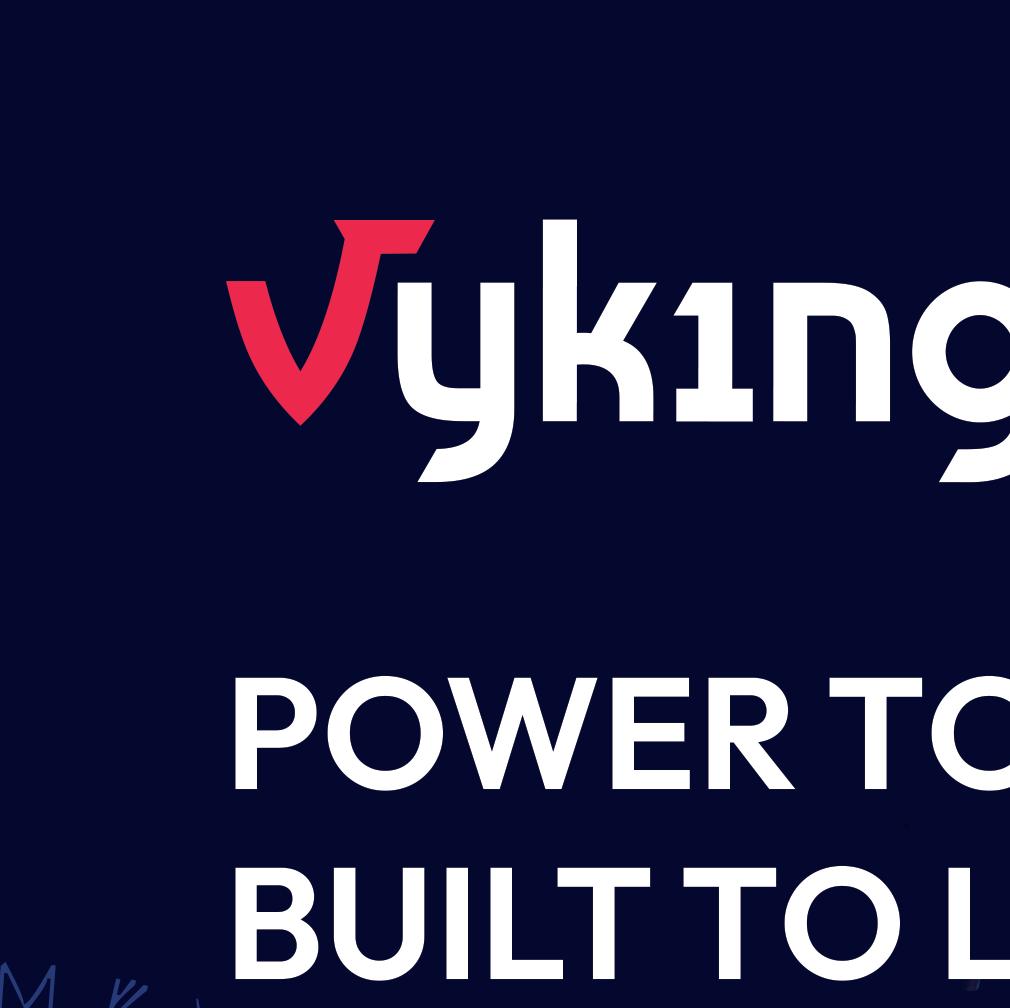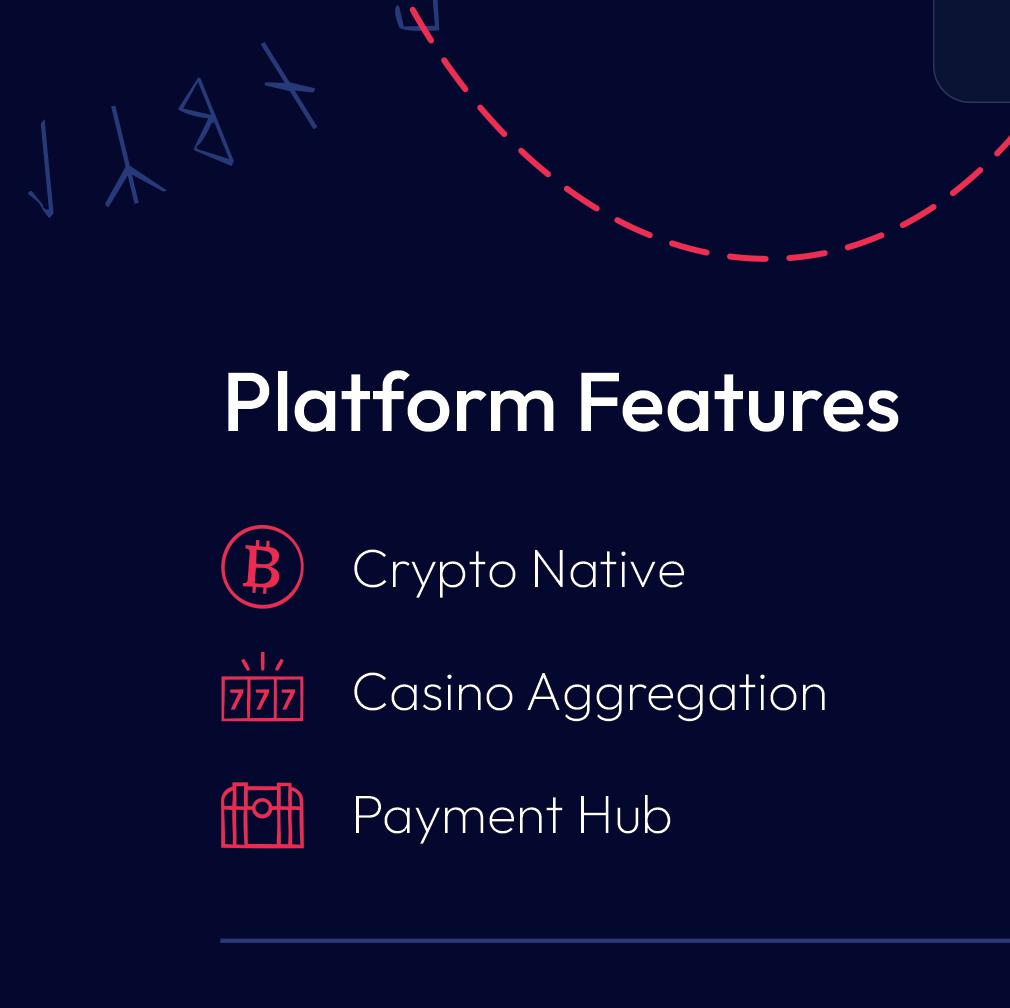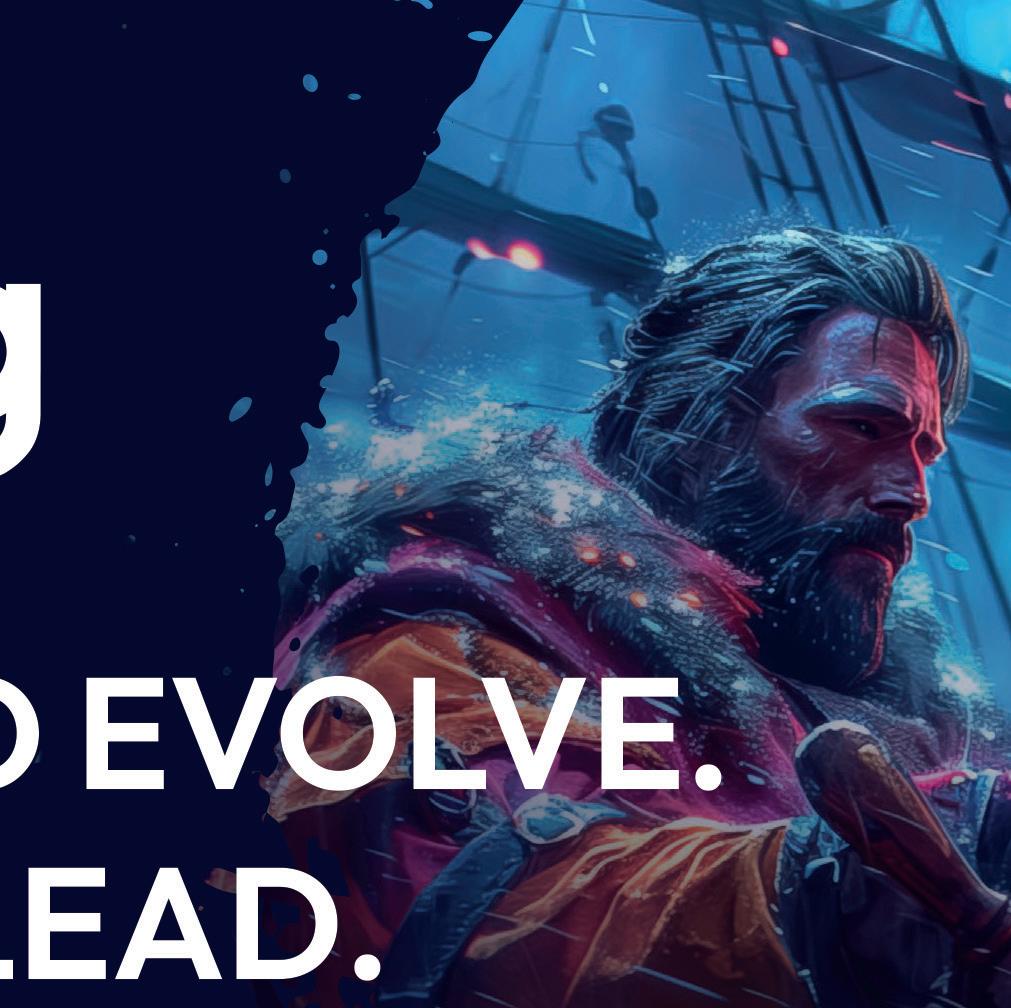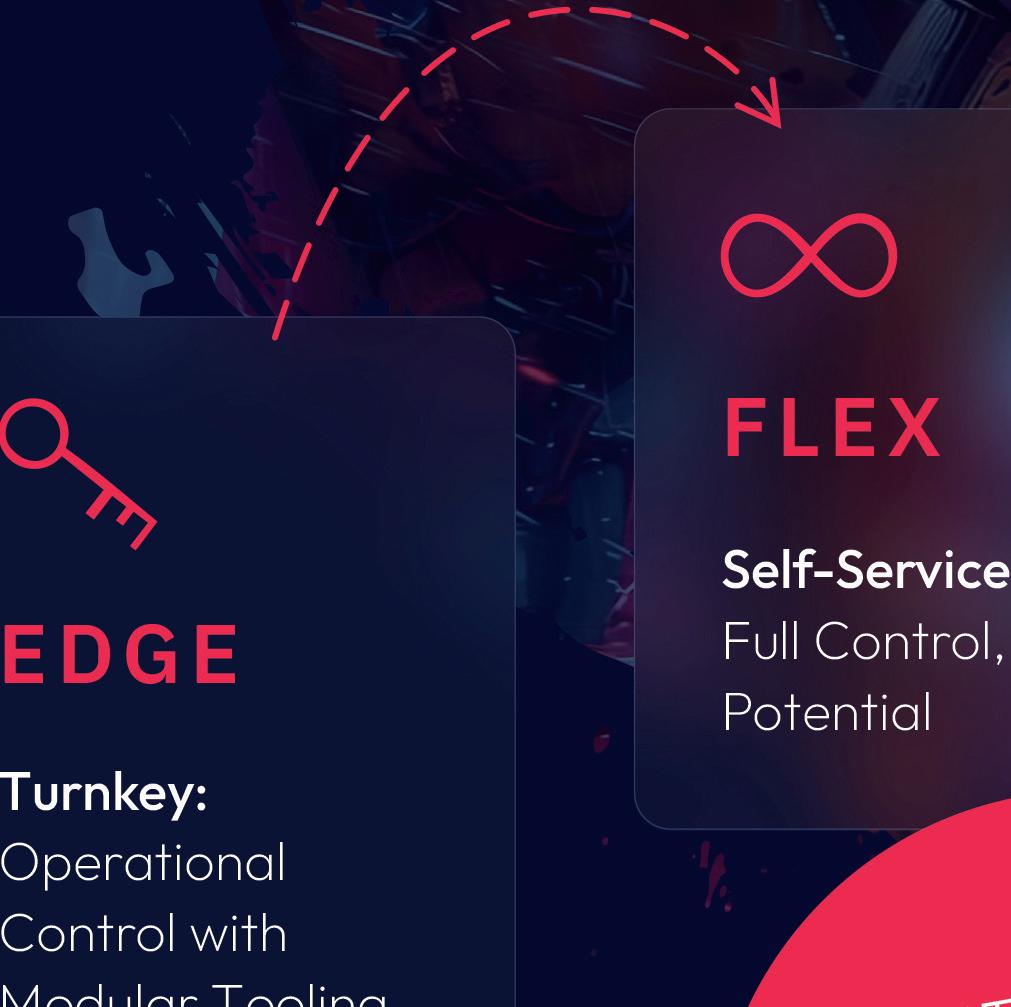




The issues with channelisation? The misconceptions around AI? The right path for recruitment?










IN OR OUT?
With its talent pool so heavily saturated with iGaming professionals, how possible is it to bring diverse non-gaming hires to Malta?


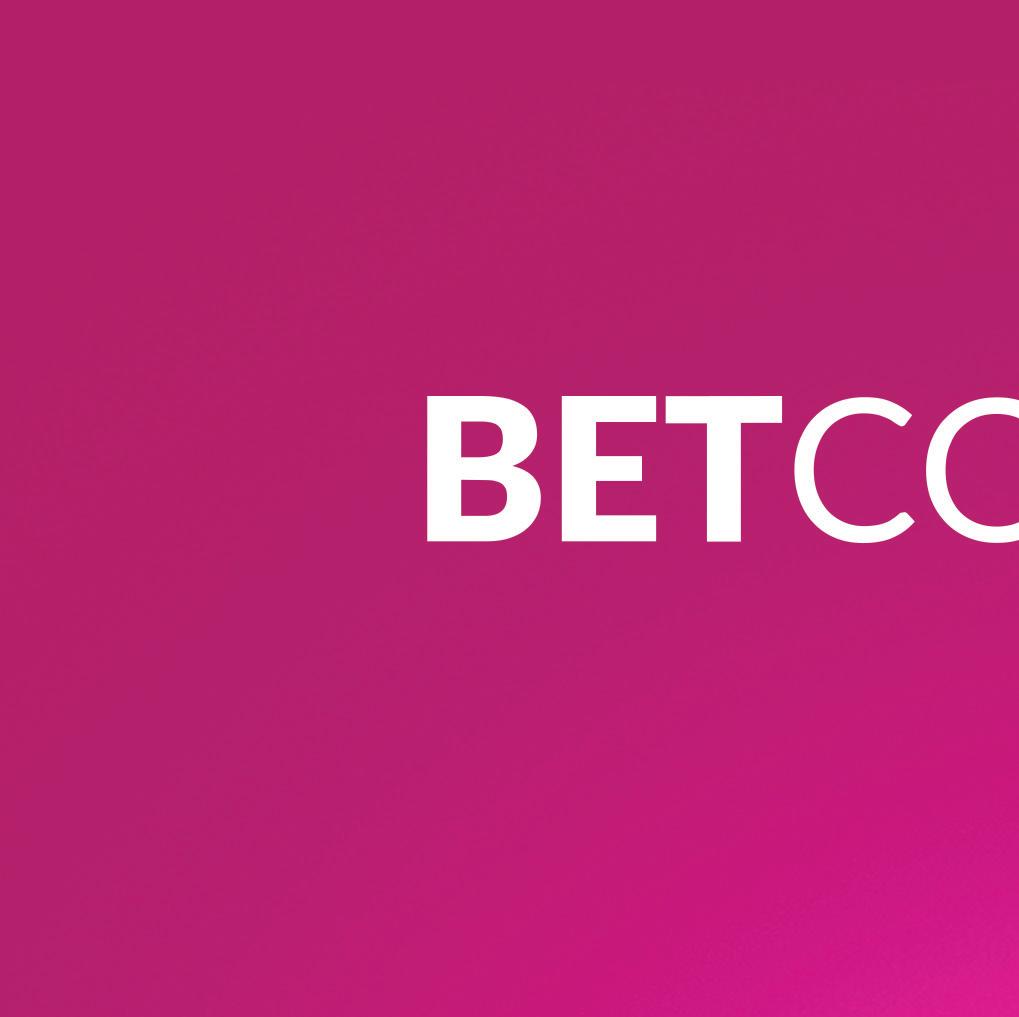























The issues with channelisation? The misconceptions around AI? The right path for recruitment?










With its talent pool so heavily saturated with iGaming professionals, how possible is it to bring diverse non-gaming hires to Malta?














































Our annual Malta Focus arrives early this year, following the calendar switch of SiGMA Malta/Euro-Med to early September. We look forward to November’s Sigma Europe Summit but, while all roads lead to Rome, what’s written for Malta stays in Malta!

COO, EDITOR IN CHIEF
Julian Perry
EDITOR
Tim Poole
Tim.Poole@gamblinginsider.com
SENIOR STAFF WRITER
Beth Turner
STAFF WRITERS
Will Underwood, Rory Calland
CONTENT WRITER
Megan Elswyth
LEAD DESIGNER
Claudia Astorino
DESIGNERS
Olesya Adamska, Callum Flett, Gabriela Baleva
JUNIOR DESIGNERS
Medina Mammadkhanova, Monika Petrova
ASSISTANT DESIGNER
Tanya Aleksova
ILLUSTRATOR
Judith Chan
MARKETING & EVENTS MANAGER

And, as ever, there is plenty to discuss on this archipelago that has become intertwined with online gambling. Malta’s modern history as a gaming hub leaves it in a unique position: for any fledging jurisdictions competing around the world, Malta’s gaming heritage means it can boast a state of ‘we’ve forgotten more than you’ll ever know.’
Our cover feature addresses the conundrum of Malta needing talent external to the gambling industry, while having become synonymous with gambling industry-only talent. In other words, how can Malta attract more in the way of variety and diversity, when it has become famous for being gaming-centric – with staff within the sector constantly moving around internally?

We speak to a select group of experts on the topic – and there is further discussion on recruitment in a bespoke article from regular Gambling Insider contributor Paul Sculpher.

Mariya Savova
FINANCE & ADMINISTRATION ASSISTANT
Dhruvika Patel
PUBLISHING ASSISTANT Abi Ockenden
MANAGER
Powling COMMERCIAL DIRECTOR Deepak Malkani
Deepak.Malkani@gamblinginsider.com



In fact, I’m a very happy Editor indeed when I look through the opinion pieces we have in this issue. Sculpher is persuasive in his argument that only ‘clowns’ would rule out good C-level candidates external to the industry, while another Gambling Insider regular – Mark McGuinness – is unequivocal in his argument that AI is not a threat but instead a ‘great equaliser.’
Perhaps most argumentative of all, however, is IGA Group’s Darran Ingretolli, another of our contributors, who writes that the ‘charade’ of channelisation is actually nothing to do with responsible gambling, but rather protectionism that ensures only established operators are provided with the right conditions to succeed.

Tel: +44 (0) 204 591 3117
ACCOUNT
9277
ACCOUNT MANAGERS
Serena Kwong
Serena.Kwong@gamblinginsider.com

I can imagine many of our readers – and guest writers – potentially disagreeing with what’s said, perhaps even wanting to write a rebuttal, so Ingretolli has certainly thrown the cat among the pigeons with this one.
But that’s what we bring here at Gambling Insider, and beyond our cover feature and those three fantastic contributions, we also have a preview of SiGMA Euro-Med, the biggest movers & shakers in Malta this year and reviews of iGaming-relevant panels at London’s iGB Live trade show.
We look further into Malta’s Bill 55, too, alongside a HR and strategy-focused interview with Betby. And, of course, where would we be without our staple company profiles from firms across Malta?



Tel: +44 (0) 203 787 4615 Irina Litvinova
Irina.Litvinova@gamblinginsider.com
Tel: +44 (0) 203 855 0662
Tel: +1 702 850 8503
Pugh
Michelle.Pugh@globalgamingawards.com
So, while we’re hitting Maltese shores a little sooner in 2025, it’s for good reason. There’s plenty to process, plenty to discuss and, if you’re reading this at the SiGMA show, plenty more business to negotiate!
TP, Editor






Tel: +44 (0) 207 360 7590
CREDIT MANAGER
Voit
WITH THANKS TO:






08 TIMELINE


Looking back over key market entries to the Maltese landscape
10 MOVERS & SHAKERS
We take a look at the industry’s key appointments in Malta
16 THE ‘CHANNELISATION CHARADE’
Darran Ingretolli, of the IGA Group, really throws the cat among the pigeons with his take on channelisation...
20 BORDERLESS PROTECTION
GTG Legal Partner Dr Terence Cassar dives into most-discussed gaming bill in Malta
26 IN OR OUT?
Gambling Insider explores the challenge of non-gaming hiring within a Maltese job market dominated by iGaming professionals
32 RECRUITMENT CONTINUED
Paul Sculpher, Director of GRS Recruitment, explores internal vs external hiring in Malta








34 SIGMA EURO-MED & CENTRAL EUROPE

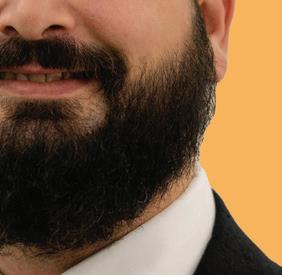


Gambling Insider previews the new-look SiGMA shows in Malta & Rome
38 IGAMING’S NEXT CHAPTER
Betby COO Eva Berkova discusses the supplier’s approach to Maltese recruitment in conversation with Gambling Insider
40 IGB REVIEW
Gambling Insider reflects on some of the key iGaming-related panels at iGB Live 2025 in London
48 THE GREAT EQUALISER Devilfish.com CMO and regular Gambling Insider contributor Mark McGuinness discusses why AI isn’t coming for your job... it’s coming for your excuses



06 HUB88 12 MIFINITY 14 DS VIRTUAL GAMING
BETCONSTRUCT 22 BETBY
SPRIBE 36 HABANERO 46 1WIN 50 VYKING

















In today’s head-spinningly fast-moving industry, e ciency and moreover visibility are crucial for operators managing multiple partners and platforms at the same time. The Hub88 Operator Zone was built to address these challenges by providing a centralised, self-service platform for streamlined business management. Now, with several new developments enhancing its scope and functionality, the Operator Zone is poised to o er even greater value to its users.
Why have clients turned to the Operator Zone in the first place?
The Operator Zone is a core part of Hub88’s service o ering, providing operators with a powerful suite of tools to manage their support, legal and onboarding processes. At its core, the platform serves as a selfservice environment where operators can track and manage their interactions with Hub88 seamlessly.
The Case Management Dashboards are a standout feature. These dashboards offer a comprehensive view of both open and closed support cases, helping operators quickly pinpoint pending actions and track resolution progress. With built-in time filters, it’s easy to monitor how long cases remain open, ensuring that nothing falls through the cracks and that service levels remain high.
Operators can also use the platform’s Customer Support tools to create new support cases for any of their brands, view historical cases and manage ongoing issues efficiently. The system is designed to keep communication transparent and prompt, allowing teams to follow up easily and evaluate the support experience through built-in case ratings.
Another integral part of the Operator
Zone is its Legal and Onboarding Tools. These are designed to simplify the oftencomplex due diligence process, providing an automated way to complete onboarding requirements. Legal compliance and integration processes are streamlined, meaning operators can get up and running on the Hub88 platform with fewer delays and less manual effort.
What’s set to turn heads for operators looking to use Hub88 for the first time?
Hub88 continues to evolve the Operator Zone to keep pace with operators’ changing needs. Several new enhancements have been introduced to make the platform even more valuable and comprehensive:
The Operator Zone now features an expanded Content Product Catalogue, giving operators access to a wide range of newly onboarded suppliers andproducts. This one-stop shop simpli es the discovery of new content, Freebet support, promotional tools, jackpot utilities and market restrictions. Initial enhancements focus on addressing the most common queries operators raise, including visibility over Restricted Countries and the Supported Currencies and Languages for each supplier. This update makes it easier for operators to navigate complex market requirements and expand their o ering con dently:
Onboarding
Getting started with Hub88 is now quicker than ever thanks to the new One-Click Onboarding function. This tool simplifies the entire onboarding process, from collecting general business information to setting up technical integrations for both sandbox and production environments. By automating what used to



be a manual, cross-departmental process, One-Click Onboarding reduces operational delays and breaks down information silos between TechOps, commercial and legal teams. The result is a smoother, faster path to market for new partners.
Finally, Hub88 continues to prioritise service excellence with end-to-end support. Beyond the self-service tools of HubConnect, operators still have access to dedicated support across all critical areas, including BI, TechOps and Legal. Whether troubleshooting technical issues or navigating compliance challenges, Hub88 ensures that expert help is always available when needed, helping operators focus on growing their business.
Operational oversight is enhanced with the introduction of a Flagged Activity page in the backo ce. This new feature automatically highlights transactions that may need further review, streamlining fraud prevention and compliance work ows. Each agged transaction can be tracked through clearly de ned statuses such as ‘Flagged,’ ‘Investigating’ and ‘Resolved,’ making it easier for teams to stay on top of important cases and take appropriate action without delay.
Hub88’s Operator Zone is more than just a support tool, it’s a comprehensive ecosystem for managing your entire Hub88 relationship. By centralising content, operations, support and more in one intuitive platform, Hub88 empowers operators to work smarter, faster and with greater clarity than ever before.
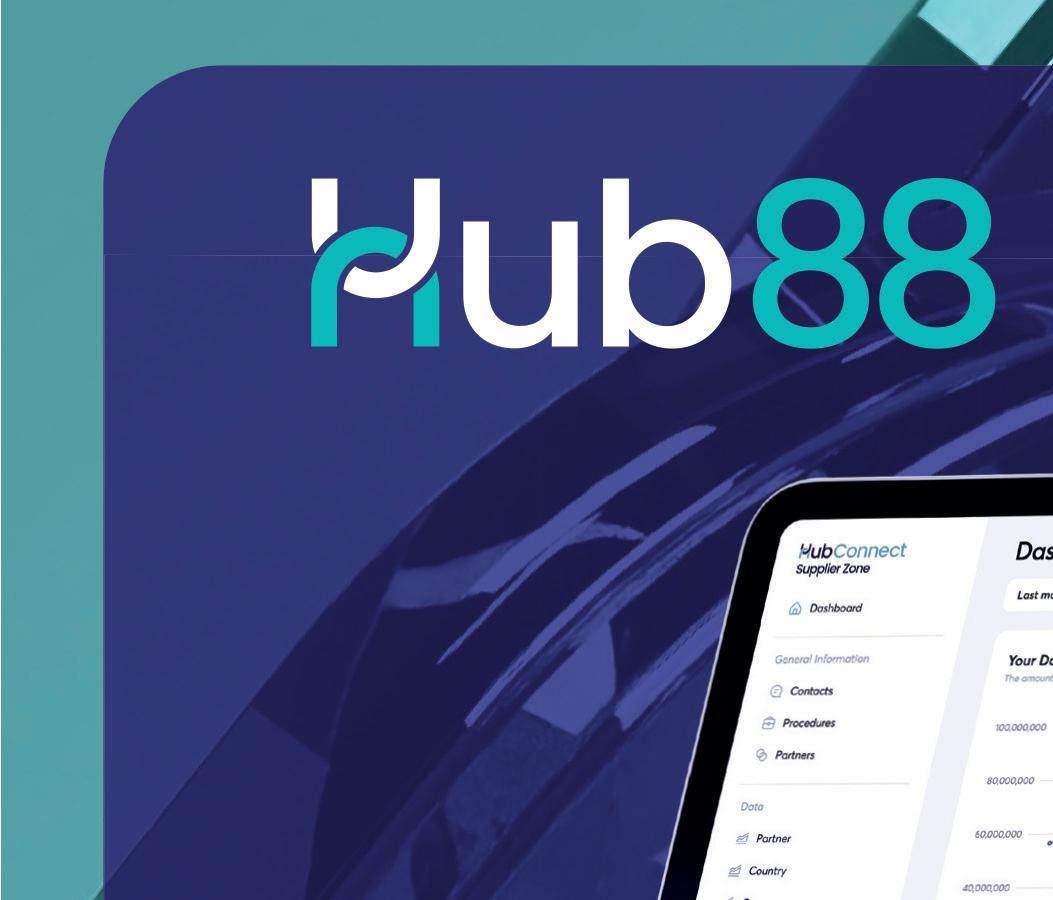

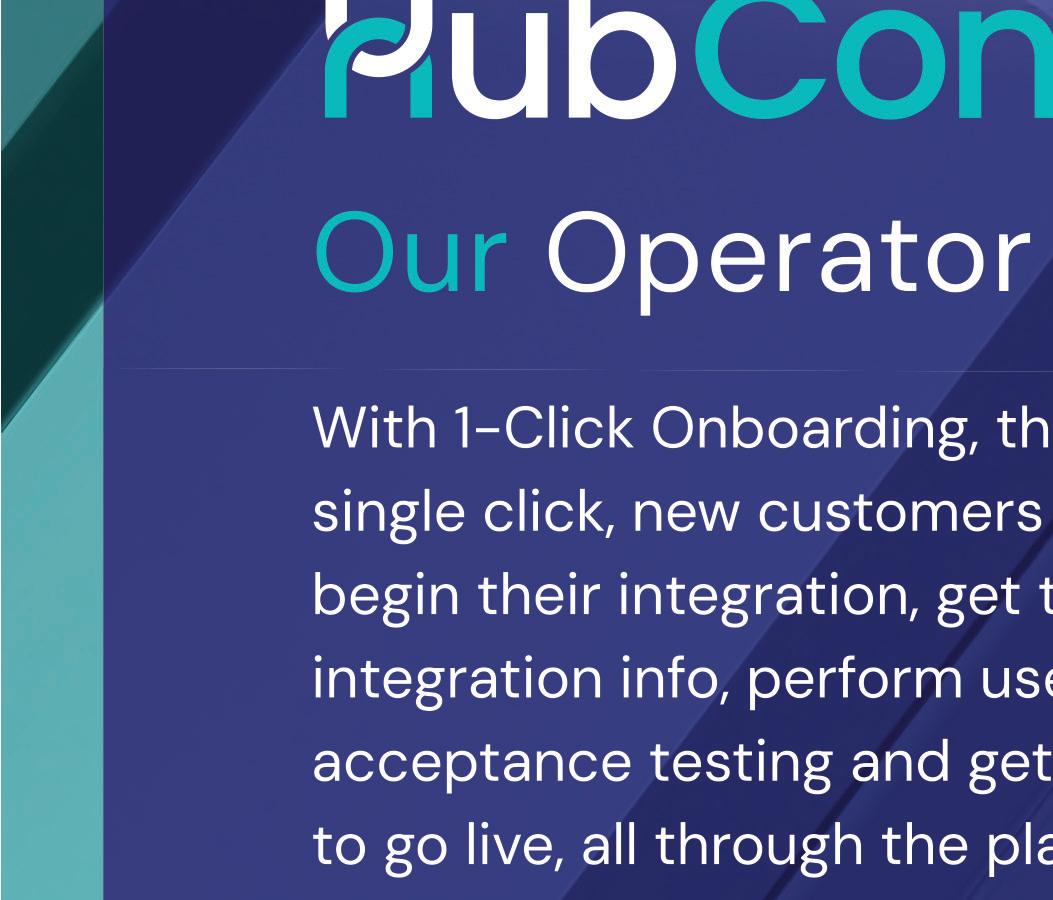

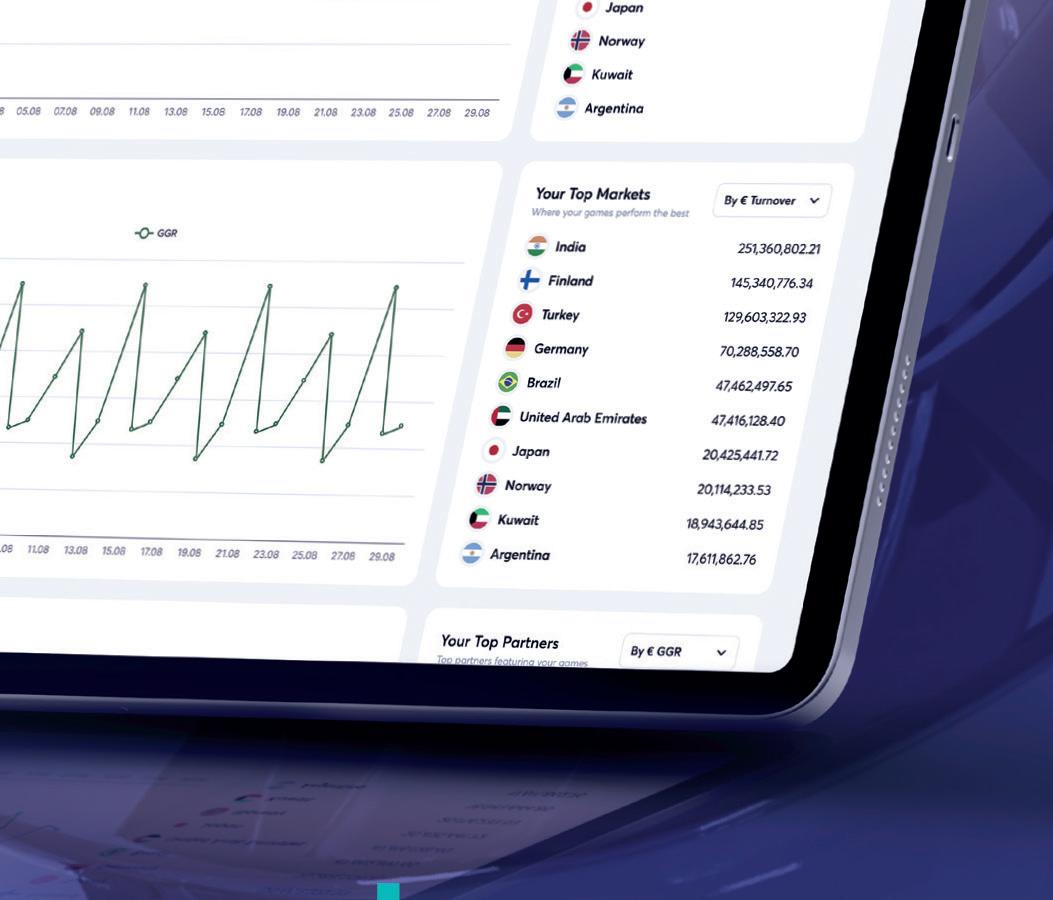
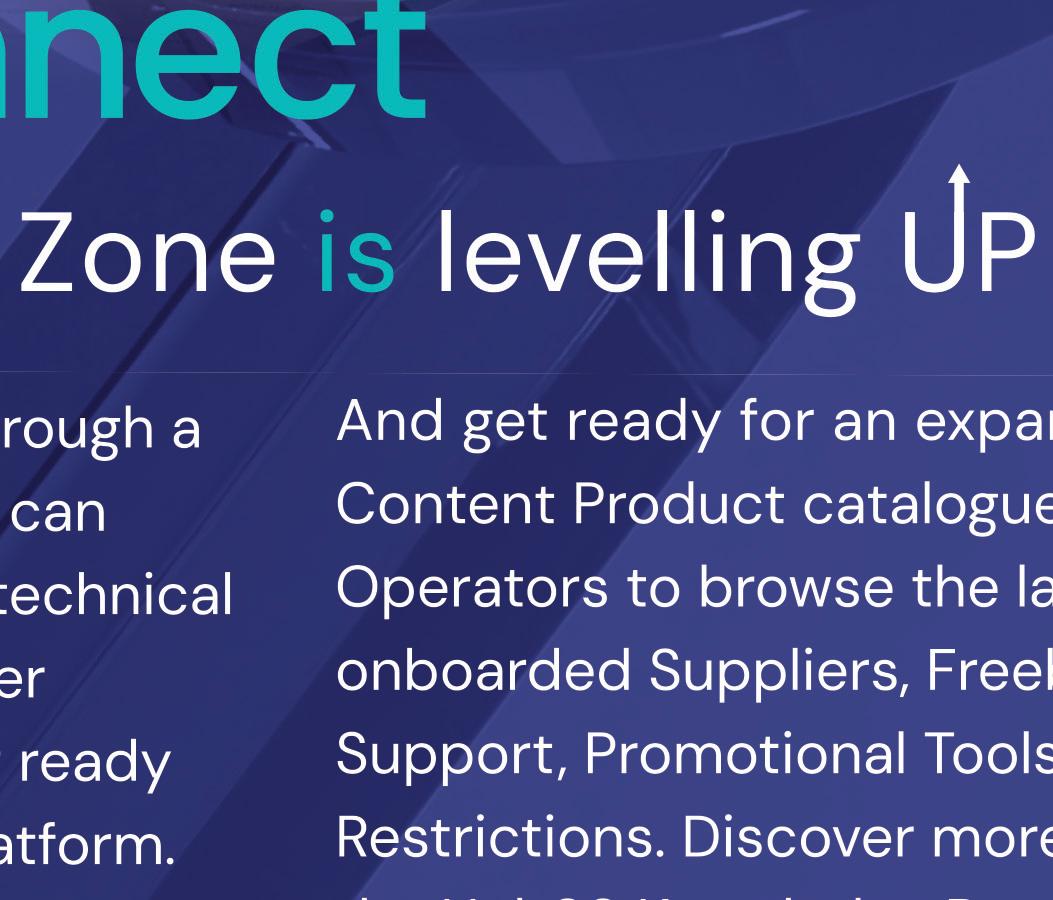

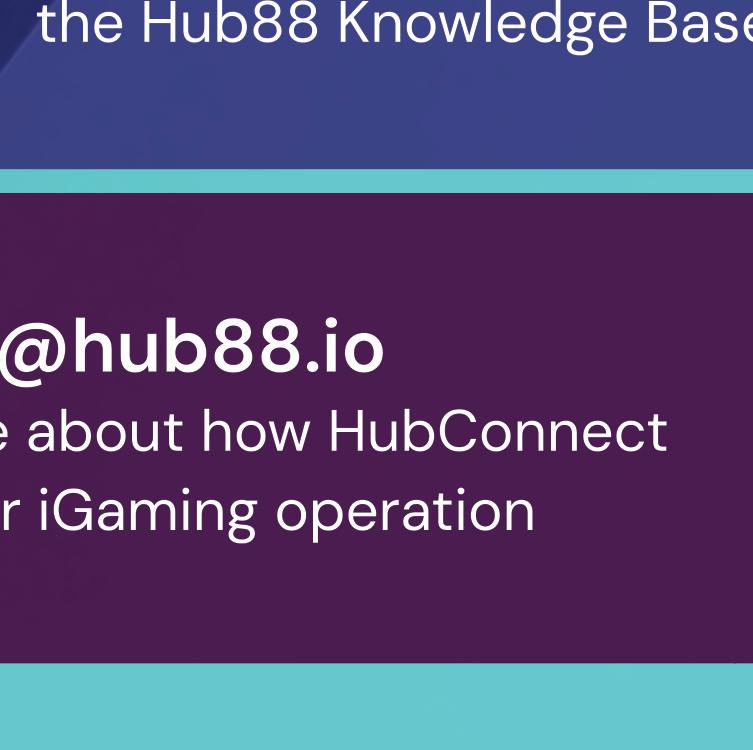






Now established as one of the most highly sought-after licences on the global stage, Gambling Insider takes a look back at MGA Maltese market entries from some of the industry’s key players
Betsson Group becomes one of the rst-ever MGAlicensed online gaming companies in Malta, entering the market through its BML subsidiary

With Malta slowly becoming the EU’s agship online gaming jurisdiction, operator bet365 obtains o cial B2C authentication within the nation
Simultaneously, fast-expanding operator LeoVegas makes its own successful bid for licensure on the island

As the year draws to a close, Playson enters the Maltese gaming landscape
Following the continued proliferation of online gaming in the EU, Evolution becomes one of the first major suppliers to become licensed by the MGA
IGT is the next global player to obtain a B2B supplier licence on Maltese shores, signifying a major step for both the country and company
Amid a urry of licensing activity in Malta, Betfair also launches its operations in the nation during the same month
2018 concludes as a major year for Maltese online gaming, with Playtech becoming the last major supplier to make its way into the market


Inspired Entertainment introduces its gaming content to what is fast becoming the hub of European online gaming via its own B2B supplier licence


Kaizen Gaming moves in on the action, also entering the marketplace via MGA licensure
Entain-owned Austrian sports betting brand Bwin becomes the next entry into the Maltese landscape amid the Covid-19 pandemic


Delasport is the latest sports betting gaming organisation to make its way into the Maltese market
Shortly after, Altenar also makes its Q2 entry into Malta as part of a phase of EU expansion
As the world turns over into a new decade, Digitain announces itself on the EU stage by securing the MGA licence for its B2B operations
Three years after its initial incorporation, supplier Habanero makes a successful bid to obtain an MGA licence, bringing its online games to Malta
Another global giant in Aristocrat obtains a B2B licence in Malta as part of a global expansion phase that draws an enhanced focus on Europe






Malta isn’t just focused on welcoming new products and innovation, but seasoned talent too. Gambling Insider takes a look at some of the biggest appointments made on the archipelago so far this year










Aida Vardanyan CEO, Digitain Malta
Aida Vardanyan was one of the first appointments of 2025 when she was hired as CEO of Digitain Malta. She had been with Digitain since 2016 when she joined as a Financial Analyst, before rising through the ranks to become Head of the International Financial Planning and Operations Department in 2019. In her new role, Vardanyan will oversee all of Digitain’s Maltese operations. Digitain plans to use its Maltese hub as a springboard into regulated European markets, including the UK, Greece and Sweden – all countries it obtained licences for in 2024.

Vardanyan is fluent in three languages: English, Armenian and Russian

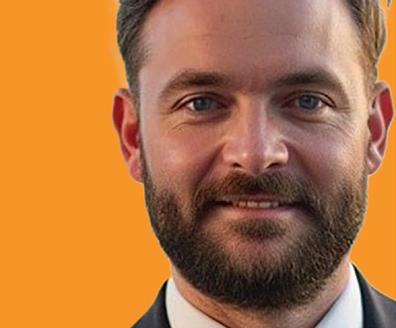


Jose Simon Kadala
CCO,
Yggdrasil
Early in 2025, Jose Simon Kadala was promoted within Yggdrasil to become CCO. With 20 years of industry experience, Kadala has previously worked with IGT, Microgaming, Skywind Group and Stakelogic.
The new appointment was no surprise, though, as Kadala had been instrumental in securing partnerships with iGaming Platform, Bally’s Interactive and Panbet. He will continue to drive Yggdrasil’s expansion across Europe from the company’s headquarters in Malta.

Kadala volunteered with Save the Children to build a school in Mexico City






Craig Asling Director of Games, Booming Games
Craig Asling doesn’t just bring gambling industry knowledge to his new position, but a long history of experience in traditional video games. Asling has trained in Nintendo compliance, completed various Lego projects and even worked on mobile games for a few years.
After joining the gaming industry as we know it in 2014, Asling has continued to work in HTML5 development, slot machine design and strong art direction. As he joins Booming Games, he will direct his experience into building a strong identity for the company’s games.

Asling was involved in the creation of the Lego Batman, Lego Star Wars and Lego Indiana Jones games





























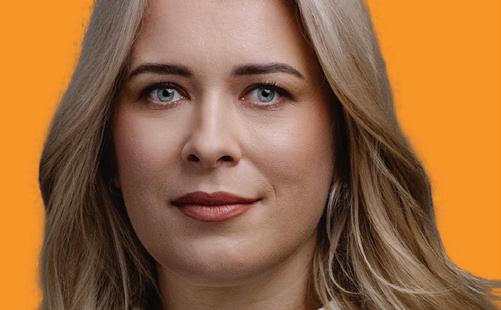
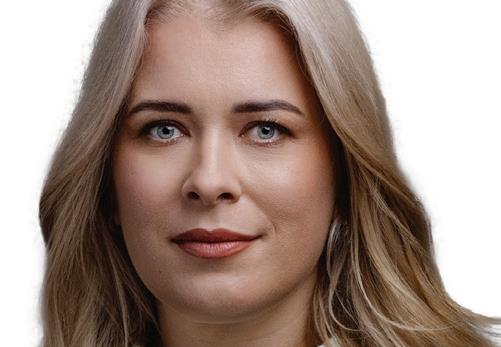

Nadiya Attard
CCO, Elantil
Nadiya Attard has an interesting range of experience in the gaming industry, starting in an outbound call centre for Betfair and climbing the ranks to a CCO. Along the way, Attard has worked as Director of Business Development for NetEnt, Senior Executive for Prima Networks and CCO for Relax Gaming. As Elantil continues to sign deals with companies such as Betby, Swintt, Playson and Optimove, Attard will aim to continue driving the company forward in its transformative phase.

Attard was born in Ukraine but has been living in Malta since 2006 – nearly 20 years! In that time, she’s earned the nickname ‘Turbo Mode’







Anthony Dalla-Giacoma CCO, Swintt
After a diverse career in technology, Anthony Dalla-Giacoma finally entered gaming in 2013, when he joined NetEnt as an Account Manager. He had previously worked as an International Business Developer with Sense of Nature, as well as holding positions in Gartner and HP. Dalla-Giacoma also worked for Quickspin for several years, rst as Head of Account Management and then CCO.
This international experience should be called upon as Swintt looks to expand into Italy, Brazil and Switzerland in the upcoming months. The company has acquired Elysium Studios, which it expects to perform well in these markets.

Dalla-Giacoma’s degree was a joint honours Language applied to Economics and Politics







Kathryn Baker Chair, Raketech
The most recent appointment on this list, Kathryn Baker was nominated in mid-June to succeed Ulrik Bengtsson at Raketech. She has extensive board experience spanning over 25 years and has worked with venture capital and private equity businesses, Catena Media, Genetic Analysis and GiG, to name a few.
Baker will aim to guide Raketech into a more financially successful direction as it enters a transformative period within the business. The business will begin by reviewing its non-core US tipster and subscription products.

Baker was previously a Board Member of Make-AWish in Norway
















































At MiFinity, we caught up with our Chief Innovation Officer, Linus McDonnell, to explore what makes MiFinity’s tech offering unique, how his team is using AI and what’s next for payments in the iGaming space
As someone with a deep understanding of MiFinity’s platform, what do you think truly sets us apart in the iGaming payments space?
For me, it’s the way we’ve embraced cloud technology from day one. We’re fully cloudnative, which gives us massive scalability and transactional capabilities, and reduces the operational overhead that slows other companies down. That foundation lets us focus on what matters – delivering seamless, reliable payment experiences.
We’ve also built out a mature microservices architecture, which means we can roll out new products and business lines quickly, without disrupting what’s already working. And our developer-first mindset plays a huge role – we prioritise seamless integrations through our APIs, whether it’s for web, mobile or iFrame. That makes life easier for our partners and gives us an edge.
Internally, we often talk about the pace of iGaming and how tech teams need to keep up. How do you approach that challenge in terms of innovation and delivery?
It starts with culture. We’ve built geographically distributed, cross-functional teams that re ect a diverse set of perspectives. That diversity helps fuel innovation – we encourage a culture where everyone contributes ideas and owns outcomes. The democratisation of ideas and ownership of features is key in developing high-performing cross-functional teams.
I’m also actively changing delivery to metricbased which gives us key insights in the gaps where we would have not seen before. We’re getting better visibility into what’s working and where we need to improve. We’re also incubating a rapid prototyping model to
reduce our time to market and help us test ideas fast. Ultimately for me it’s about working smarter and not following process blindly – a question everything approach!
You’ve been vocal internally about the potential of AI. What impact do you see it having on the industry, and on how we work?
There is no doubt AI is a disrupter. The evolution of the tech is astounding, with monthly changes to the complexity and simplicity of its delivery. Within the gambling industry, I see it making a big di erence on two fronts: Operations and customer experience.
On the operational side, I see it eliminating routine and knowledge-based tasks – letting teams focus on strategic initiatives rather than firefighting. The introduction of AI agents to the business will allow us to compound scale the business. We’ve already seen a 20% boost in development efficiency based on our KPI, and I expect that number to rise as we embed our AI-enabled CI/CD pipeline more deeply.
















Linus McDonnell, Chief Innovation Officer, MiFinity

For the customer, AI will enable a far more personalised experience, reducing friction from onboarding to retention. I envisage a more bespoke marketed player journey with many of the new tools being able to generate custom interactions. Visiting ICE Barcelona earlier this year, really highlighted for me how fast the customer experience will evolve. It’s truly an exciting time to be in technology and in such a dynamic industry.
Beyond the usual fraud and risk use cases, where else do you see AI making an impact?
Two really interesting core standards are emerging right now: The Model Context Protocol and agent-to-agent communication. Together, they could enable a new layer of data sharing between B2B operators –unlocking access to richer data sets and enabling far more intelligent decisionmaking. This will be a real game changer in terms of reporting and operations. Think of it as bespoke reporting at a business’s ngertips.
Finally, looking ahead, how are we preparing MiFinity to meet the future needs of iGaming?
Scale, scale, scale. It’s easy to say, but hard to predict and implement. At MiFinity, it’s both a cultural and technical challenge. We’re always asking: How do we build systems – and teams – that are secure, elastic and built to handle the peaks this industry throws at us? To achieve this we are constantly pushing the bounds of technology. This is, and will, enable us to consistently deliver a quality product to our customers. No matter how fast things move.






















At DS Virtual Gaming, we believe the future of gaming lies in merging cinematic vision with interactive technology. For more than two decades, we’ve pushed the boundaries of what’s possible in virtual entertainment–delivering immersive, scalable and regulationready solutions across global markets.
Today, that future arrives in 4K clarity.
Our newest flagship product is a nextgeneration live-rendered roulette experience–developed in partnership with one of the world’s premier visual effects studios, known for its work on blockbuster Marvel films. This isn’t just another virtual roulette. It’s a seamless, no-cut, real-time cinematic experience, crafted with film-level motion design and built for 24/7 play. The result is a game that redefines visual fidelity and realism in the virtual betting space.
Unlike traditional virtual roulette options, our newest release features uninterrupted spins with no transitions, camera cuts or arti cial movement. Every rotation, bounce and final result is rendered in high frame rate and real physics. Players feel that they’re watching a real wheel in action – but with the technology and visualisation only DS Virtual Gaming can deliver.
Rendered fully in 4K UHD and optimised for both high-performance terminals and remote play, the game is accessible in real time, around the clock, across any geography. Whether your players are logging in from
kiosks, mobile devices or betting shops, they get a premium, movie-grade roulette experience – day or night.
As global demand shifts toward autonomous, always-on solutions, our product roadmap has evolved accordingly. That’s why our roulette and wider game portfolio are available through fully standalone, singleplayer terminals, now operating in retail and gaming venues across Europe, Latin America and Africa.
These plug-and-play machines come preloaded with our content, including the new roulette, and are designed for minimal setup and zero third-party dependencies. Operators can roll out instantly – no external integrations, no hidden hardware constraints, just a streamlined experience backed by full in-house support.
For venues already equipped with terminals or infrastructure, we offer bespoke integration solutions. Whether you’re running legacy systems or newer units without gaming software, our team can adapt all our game experience to your environment without costly overhauls.
From gameplay to hardware, presentation matters. That’s why our terminals were developed in collaboration with MIKKA GmbH, a respected European leader in industrial design. Weighing in at 100kg and engineered to re ect the elegance of
premium land-based casinos, each terminal acts as both a functional gaming device and a visual centrepiece.
However, aesthetics are only the beginning. These units are rugged, operator-friendly and designed for continuous uptime, delivering reliable 24/7 performance across even the busiest venues.
With over 20 years of market expertise, DS Virtual Gaming has remained at the forefront of virtual betting innovation. We pioneered self-service ticketing systems that gave players new autonomy. We’ve championed regulation- rst content deployments that align with local laws and responsible gaming practices. And now, we’re transforming what players expect from the most classic casino game of all: roulette.
Our mission remains simple: to create entertainment that’s beautiful, accessible and endlessly scalable. Whether through premium standalone devices or tailored integrations, we deliver technology that meets today’s challenges – and anticipates tomorrow’s.
With our latest 4K, cinematic roulette now live, DS Virtual Gaming invites operators to rethink what’s possible in the virtual space. Because this isn’t just gaming. It’s storytelling. It’s realism. It’s the next evolution of digital play.
Let’s build the future – one spin at a time.




























IGA Group’s Darran Ingretolli analyses the intersection betwen Malta, the EU and channelisation – and industry term he believes is far different in theory than practice
Frequently cited in policy documents and press briefings as a marker of responsible regulation and safer gambling, channelisation is generally described as a strategy to protect consumers by guiding them toward licensed platforms. In practice, however, beneath the polished exterior, it’s quite obvious that channelisation is far less concerned with safeguarding players and far more focused on shielding domestic markets. Indeed, it acts as a smokescreen for protectionist policies that restructure market rules to entrench the position of established operators.
While the CJEU (Court of Justice of the European Union) has ruled that gambling is an economic activity protected under the internal market rules of the EU (Schindler, C-275/92), it has also consistently held that Member States may restrict cross-border gambling services, provided that those restrictions are justified by overriding reasons in the public interest. The Court has made it abundantly clear that increasing tax revenue or favouring a domestic monopoly are not valid justifications under EU law. And yet, that’s precisely what channelisation strategies appear intended to achieve, while
“Crucially, what remains conspicuously absent is any unequivocal data demonstrating that channelisation actually translates into a reduction of gambling harm”

hiding behind terminology designed to align with the ‘public interest’ exception to the free movement of goods and services.
Regulators frequently employ diverse and sometimes con icting methods to calculate channelisation rates, ranging from player surveys and internet tra c analysis to gross gaming revenue (GGR) gures. Then, they selectively interpret this data to support a predetermined narrative.
Crucially, what remains conspicuously absent from these metrics is any unequivocal data demonstrating that channelisation actually translates into a reduction of overall gambling-related harm. The answer is that there is no such data – it simply doesn’t exist – which begs the question: how can you fix what you can’t define or manage what you cannot measure?
THE POLICY BLIND SPOT
What is too often absent from the channelisation discourse is the player – the


real, living consumer whose preferences shape the market. This blatant disregard for player preferences is an open secret within the industry. First of all, the very idea that players can – or should – be corralled into state-approved gambling environments in a borderless digital economy perfectly exposes the mindset driving modern gambling policies.
The assumption that players will passively accept a poorer product simply because it is labelled “safe” is also not borne out by the data. On the contrary, we clearly see them gravitate towards value, choice and efficiency. Confronted by licensed offerings characterised by fewer options, less competitive odds, intrusive KYC and source of wealth (SoW) checks as well as curtailed incentives, players are responding by using VPNs and gambling with cryptocurrencies via grey-market operators.
It should be clear from this widespread defection that the grand behavioural experiment – measuring exactly how much friction consumers will tolerate before abandoning a market – has failed.
Regulators frequently blur the lines between illegal operators and those that are fully licensed but based outside their jurisdiction. Any operator not subject to local oversight or taxation is then branded “illegal,” a label implying both criminality and consumer risk. In reality, the vast majority of these companies are authorised and regulated in well-established jurisdictions

such as Malta, Curaçao or the Isle of Man. Dismissing them as inherently unsafe or unlawful simply because they fall outside a particular country’s regulatory perimeter is misleading – though it does conveniently support protectionist policies aimed at excluding legitimate competition.
No one disputes the need to protect children or problem gamblers. The industry has a moral duty to uphold standards and regulation is a crucial part of the framework. It is disingenuous, however –not to mention hypocritical – to claim that channelisation is primarily about harm reduction when the very governments promoting these ideals continue to aggressively market their own offerings.
State lotteries are a case in point.





Often the most ubiquitously marketed gambling product – saturating street corners, supermarkets and online spaces with promises of life-changing jackpots –their pervasive appeal is built on the very same hopes and habits as any other form of gambling. When governments demonise offshore competitors on moral grounds and when ‘protecting the vulnerable’ becomes a transparent euphemism for safeguarding market share, any existing credibility completely unravels.

Most EU jurisdictions impose relatively high tax rates on gambling, and protecting these fiscal frameworks often depends on limiting competition from operators based in lower-tax jurisdictions. Beyond high taxes and restricted advertising, the regulatory burden is being raised in more subtle but equally exclusionary ways –through onerous compliance obligations, layers of bureaucracy and prohibitive licensing costs.
Darran Ingretolli, IGA Group
In some markets, the price of entry for a full gaming licence now reaches into the high six or low seven figures. Italy, for example, has implemented a one-off licence fee of €7m ($8.2m) – a 35-fold increase from its previous rate – leading to a significant consolidation of the market. Are such measures truly about safeguarding players, or are they a means of reinforcing existing monopolies under the banner of public interest?
Who, realistically, can absorb sevenfigure licence fees, staff legal teams across multiple jurisdictions and maintain compliance departments the size of mid-tier companies? Actually, only the largest iGaming firms can survive in such environments and, interestingly, these are the same operators now being praised for “working closely with the Government to support channelisation.” The conflict of interest is hard to ignore – this is a system where the foxes are guarding the henhouse and calling it responsible gaming.
It is important to realise that governments cannot legally tell their citizens where to spend their money. Instead, they lobby payment processors, banks, game providers and increasingly platform operators to deny service to their own citizens. What they are unable to justify legally, they outsource to private companies, who can block players as a matter of commercial policy rather than public law.
This is not protection, but protectionism, supported by a policy apparatus designed to limit and dictate individual spending in a way that challenges the very notion of consumer autonomy within a free market; delegating enforcement to private actors with no transparency or accountability creates a tenuous legal grey zone, skirts competition law, infringes on internal market freedoms and offers no formal remedies to the users or businesses affected.
One of the perverse consequences of this environment is that iGaming advisory firms and corporate service providers (CSPs) are increasingly steering their clients towards jurisdictions like Anjouan and Curaçao. These jurisdictions, which offer pragmatic, cost-effective licensing solutions, are fast becoming the only sensible and viable option from a commercial perspective. By leveraging grey markets, companies can go live swiftly, prove product-market fit, build operational knowledge and
generate the revenue to fund the expansion to regulated markets.
Ironically, the ‘unregulated’ sector is effectively subsidising the ‘regulated’ one by generating the capital needed to eventually expand to regulated markets. This highlights another fundamental flaw in the channelisation strategy: not only is it failing to ‘channel’ players, but it is actively displacing businesses towards less regulated frameworks.
A paradigm shift is necessary. The digital tools players currently use – VPNs, crypto wallets, decentralised betting platforms –have already outpaced traditional regulatory frameworks. Rather than doubling down on restrictive, reactive frameworks, policymakers and the industry as a whole need to work towards a decentralised, transparent alternative.
In this context, blockchain technology offers several compelling advantages: smart contracts can automate payouts –and even taxation – directly via code and without third-party intervention or manipulation. Decentralised finance (DeFi) enables low-fee payments that are not dependent on legacy payment rails. Immutable ledgers give regulators full transparency while preserving user privacy and ownership – replacing opacity with verifiable fairness.
This isn’t a utopian dream: these
technologies exist and have the potential to create a win-win-win scenario for players, operators and regulators alike. The future of the industry will not be determined by channelisation statistics. It will hinge instead on disintermediation, empowering industry stakeholders with transparent, auditable global systems.
The path forward is not about building more digital walls. It is about constructing better bridges, harmonising licensing regimes and focusing on harm reduction policies backed by verifiable data rather than political rhetoric.
Far from being a safety net, channelisation is a veil obscuring the true issues… and it’s high time we lift it.
For over 20 years, BetConstruct has played an essential role in the global iGaming landscape. With a front-row seat to the evolution of the industry, we have witnessed rsthand how Malta has transformed into an international powerhouse for gaming and innovation. What was once an emerging regulatory environment has now matured into a worldleading hub where creativity, compliance and collaboration converge.
The market in Malta has grown not only in scale but also in complexity. The level of talent, the quality of ideas and the diversity of companies now located here make it one of the most competitive arenas in the industry. But competition brings out the best in us. It encourages innovation, pushes boundaries and inspires new ideas. In such a vibrant, fast-paced ecosystem, standing still is never an option and innovation becomes a necessity.
Being part of this dynamic environment has helped us grow as a company, both in mindset and in capability. Malta challenges us to think bigger and act smarter, to look beyond the obvious and deliver solutions that are not only effective but forwardlooking. The energy of the market drives us to refine our offerings constantly and to ensure that our technology, services and strategies evolve in step with industry needs.
At BetConstruct, we have always believed that standing out does not mean shouting the loudest, it means listening better, moving faster and building smarter. In this




highly competitive market, differentiation comes from more than just product. It comes from a clear vision, a strong identity and the ability to create real, lasting value for partners. Whether it is offering flexible, comprehensive solutions or creating new technologies that anticipate the next phase of player engagement, our focus remains on helping our partners succeed on their terms.
We are proud to be a company that combines experience with ambition. While we bring years of industry knowledge, we also stay open to new thinking and new approaches. That balance of confidence and curiosity is what drives us forward – and what allows us to meet the challenges of tomorrow with enthusiasm rather than hesitation.
Of course, the industry expands beyond Malta. That is why we are keeping a close watch on emerging markets across the globe. Whether it is Latin America, Asia or Africa, each region offers unique opportunities and challenges, and while we remain globally active, our goal is never just expansion. It is insightful, strategic and sustainable growth. We take time to understand local nuances, respect market dynamics and offer tools that can adapt to both global scale and regional depth.
As regulations shift and player preferences evolve, we aim to stay ahead –not only in terms of innovation, but also in how we support and serve our partners. Our mission is to remain adaptable, reliable and forward-thinking in everything we do.




Looking ahead, we hope to continue growing alongside our partners, expanding our global reach and launching new ideas that bring real value. But more importantly, we want to stay true to our mission: continue empowering our partners with tools that are not only powerful, but purpose-driven, and solutions that respond to real market needs and open doors to new possibilities.
We also understand that progress is not just measured by innovation or expansion, but by the strength of the relationships we build. Long-term success comes from collaboration, trust and shared vision. That is what we strive to nurture in every market we enter and with every partner we support.
More than any single milestone, we want to remain true to who we are: A company built on curiosity, driven by people and committed to shaping what’s next in iGaming.
Malta has been, and continues to be a crucial part of our story, and we are proud to grow alongside it. It is where big ideas take shape, partnerships begin and the future of iGaming is constantly being redefined. As the industry continues to evolve, our mission remains clear: to build with purpose, lead with vision and never lose sight of the human connection behind every innovation.
In an industry that thrives on reinvention, we see endless opportunities ahead. And for BetConstruct, the best is always yet to come.















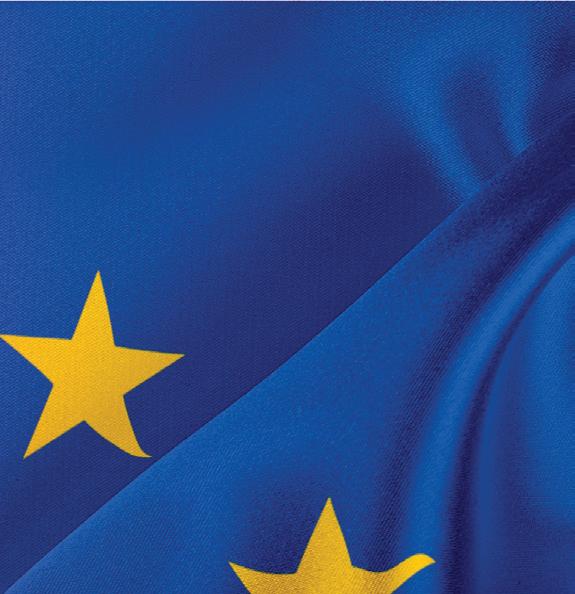

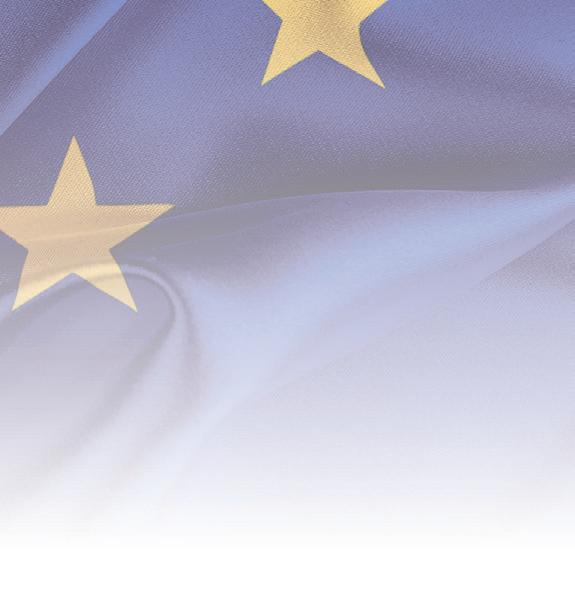
Gambling Insider spoke with GTG Legal Partner Dr Terence Cassar on the curious case of Bill 55 and Article 56A, and the developing legal battle against the bill
For those unfamiliar, can you give a brief explanation of what Bill 55/ Article 56A is and the history that led to its installation?
Article 56A of the Gaming Act is an article of Maltese Law that sets out in codified legislation that Maltese courts are to refuse recognition or enforcement of any foreign judgement or decision, if it conflicts with or undermines the legality of the provision of lawful gaming services in/from Malta by virtue of an MGA licence; or the legality of any natural obligation resulting from the provision of such gaming services. Bill 55
was the Bill that implemented Article 56A into Maltese law as an amendment to Malta’s Gaming Act in 2023. In terms of history relating to this matter, it should be noted that Malta was the very first EU country to regulate online gaming back in 2004 and has been issuing remote gaming licences since back then as part of Malta’s public policy to attract foreign direct investment in gaming.
Only in the last couple of years, Malteselicensed operators have experienced a major wave of coordinated player claims deriving mainly from players in Austria
and Germany. As such, all these multiple claims would, in terms of facts/legal arguments, be practically identical: a player in Austria/Germany claiming that in view of the applicable local position in terms Austrian/German rules (and irrespective of EU freedoms to provide services), the online gaming offering by a Maltese company to a player in such jurisdiction should be considered illegal in terms of the laws of that jurisdiction, and therefore the losses of the player are to be refunded as they are deriving from illicit activity.
Of course, the history of these claims are all centred around players that lose their money in online gaming, and some level of malice seems very apparent in the situation, with reporting to the effect that the players’ claims are also being coordinated and funded through third-party financial companies who are seemingly trying to use this matter for their (ill-intended) commercial gain. When a matter is the public policy of a country, it applies even if it has not be codified into the written legislation. But essentially, what Bill 55 has historically done is codify into Maltese law Malta’s longstanding public policy of encouraging the establishment of gaming operators in Malta who offer the local and crossborder supply of their services in a manner compliant with local legislation. This is to make it crystal clear what Malta’s position is, in light of said legal phenomenon, even though effectively from a Maltese law point of view, as the matter is one of public policy; Bill 55 did not per se change anything legally in Malta – it was simply a codification matter, not a change in position.
Why now, speci cally, has the European Court (EC) decided to publish a formal notice against Malta for the bill?
The formal infringement notice has been preceded by a lengthy process of dialogue and negotiations between the EC and Malta. Of course, this is all con dential so one can only speculate as to what the exact reason may be, and a formal version is of course not publicly available. That said, at a minimum, it is clear in my view that the EC has reached a point where it feels that continuing such negotiations will be unfruitful, because (as expected) Malta intends to retain its position based on its public policy argument.
What are the EC’s main points of argument?
There are EU rules that apply to each Member State with regards to the Recognition and Enforcement of civil judgements issued by Member States. These rules set out very strict conditions obliging each Member State to recognise and enforce civil judgements in their country for civil judgements issued by other Member States. Only limited exceptions apply enabling a Member State to refuse such recognition and enforcement of a judgement by another Member State. The EC is essentially taking the position that, through article 56A, Malta is not respecting such EU rules.
The MGA has expressed the belief that Malta has stayed within EU






Dr Terence Cassar, Partner, GTG Legal
regulation and that it will continue to support the Maltese Government. What are the main arguments against the EC’s notice?
The limited exceptions catered for in the EU rules for refusing recognition and enforcement of civil judgements issued by another Member State include a State’s public policy (in turn, there are also relevant rules on what amounts to public policy). Thus, it is important to note that Maltese law did not create additional or separate grounds for refusing to recognise or enforce judgments to those already established under EU regulations (Regulation 1215/2012).
It is simply Malta’s interpretation of the ordre public grounds for refusal envisaged in said EU regulation. So, essentially, Malta is holding that it stayed within EU regulation, as this is a matter which pertains to Malta’s public policy position on online gaming; one that has been the same for over 20 years at this point, and it is EU rules themselves which provide for public policy as an exception to recognition and enforcement EU rules.
It should also be borne in mind that the freedom to provide services within the EU, without any barriers to trade, is also one of the fundamental freedoms serving as a bedrock to the Treaty on the Functioning of the EU. In consideration of this and several relevant Court of Justice of the European Union (CJEU) judgements in context of online gaming, the Malta Gaming Authority considers that licensees are exercising their EU fundamental freedom to provide a service within the EU, and are thus acting within their rights. When they target an EU market, having a legal framework in terms of EU rules is unjustifiably restrictive due to nonadherence to CJEU principles.
As of writing, Malta has not responded to the letter. If this
case is taken to the European Court of Justice, what would the process look like to decide the status of the bill?
In terms of process, an application would need to be filed with the CJEU and an Advocate General will be assigned to this case, who plays a critical role as they would eventually issue a nonbinding (yet authoritative) opinion on the matter before the decision is issued.
After the parties plead their case and the CJEU court process takes its course, it would ultimately culminate in a decision on the applicable interpretation by the CJEU. In turn, implementation of any CJEU decision (or lack of doing so) would need to be handled through Malta’s national legislative mechanisms.
If Bill 55/ Article 56A is revoked, what would the impact likely be on the Maltese gaming market?
If Article 56A had to be revoked, of course, it could lead to a situation where operators face massive nancial exposure from the mass litigation funded by third parties. But I think the main direct impact will be on the larger operators, those who do their best to act lawfully in a legally complex and often conflicting industry, who had the funds and legal backing to be able to sustain this legally demanding situation.
I hold this view from direct experience. I feel that, in reality, the impact on many in the Maltese Gaming industry has already occurred, at least in part. When this legal phenomenon started to materialise, many Maltese operators had back then reacted by either closing the respective markets entirely or closing their Maltese/ EU operations and shifting to another jurisdiction that is insulated from the EU’s reach. Still, this would create a major problem locally as iGaming has historically been one of the main key pillars of the Maltese economy, contributing a significant part of Malta’s GDP.
Critically, Malta is the hub of EU and global online gaming in the world – so the likely impact will not be limited to Malta but to the whole global gaming industry. In turn, in my view, ultimately the players themselves would in such case be negatively impacted. Maltese Law provides for strict rules on online gaming, some of the strictest in the world, and with a foundation built on responsible gaming and consumer protection – a foundation which will not be present in any alternative jurisdiction to run international gaming operations. So ultimately, players will themselves be negatively impacted due to the lack of robust safeguards!






















From intelligent odds creation to hyperpersonalised content and automated work ows, AI is reshaping the way modern sportsbooks function and, at Betby, this transformation is central to our vision. For operators focused on building resilient, future-ready businesses, AI is no longer just a tool; it’s a strategic driver of innovation and competitive advantage.
At the heart of this transformation lies personalisation. Today’s players demand the same intuitive, seamless and hyperpersonalised experiences they receive from entertainment giants like Spotify, Netflix and Amazon. Sports betting is no longer a standalone vertical – it now sits at the intersection of media, e-commerce and entertainment. To meet these rising expectations, operators must turn to AI to deliver curated, engaging experiences tailored to each individual player.
AI-powered personalisation o ers the sportsbook sector a game-changing opportunity to enhance every stage of the player lifecycle, from acquisition to retention and beyond. It allows for a deeper understanding of player behaviours, preferences and tendencies, making it possible to o er odds, promotions and content that resonate on a personal level. Whether it’s tailoring betting suggestions based on past activity or o ering targeted incentives, AI ensures that every interaction is relevant and engaging.
The advantages are multiple. Operators can expect stronger player retention, early identification of churn risks, heightened engagement and even the ability to spot irregular or suspicious betting behaviour before it becomes a serious issue. In areas where traditional methods often fall short, AI delivers with speed, precision and scalability.
AI algorithms can analyse a vast array of data points – from the types of sports and leagues a player favours to the times of day they’re most active – to craft a deeply customised user experience.
As these algorithms continuously learn and adapt in real time, they generate increasingly accurate insights and recommendations. For players, this results in less time spent searching and more time engaged in content they care about. For operators, it means stronger loyalty, longer sessions and greater lifetime value. Personalisation at this level fosters a more immersive and emotionally resonant relationship between the user and the platform.
While AI can handle immense volumes of data and automate much of the retention process, it doesn’t eliminate the need for human intelligence. In fact, the two should be seen as complementary.
AI can flag players at risk of churn, assess the likelihood of VIP potential or predict future betting patterns. But translating those insights into strategic actions –such as crafting tailored VIP programs or implementing responsible gambling
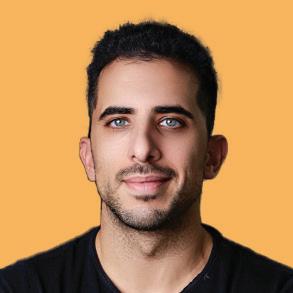


interventions – still requires human judgment, ethical oversight and contextual understanding.
The ability of AI to break down content silos is especially valuable as operators expand their o erings. For example, Betby’s in-house esports portfolio, Betby Games, bene ts from AI-driven cross-sell strategies that connect traditional sports bettors with esports content.
Let’s say a player regularly wagers on Champions League football. AI can recognise this behaviour and prompt relevant promotions tied to esports titles within the same theme, such as Betby Games’ new Champions League-inspired esports game. The result is a seamless crossover between verticals, enabling operators to deepen engagement without forcing a shift in user behaviour.
Risk management is another key area where AI delivers transformative value. Modern sportsbook operations generate enormous amounts of data – and managing that risk manually is no longer practical.
With machine-learning models, operators can dynamically assess the risk profile of each bettor and identify potentially problematic behaviours before they escalate. These AI systems can automatically build detailed player profiles and monitor patterns that may indicate fraudulent activity.
This level of automation not only enhances accuracy but also boosts operational efficiency, allowing teams to redirect resources from repetitive analysis toward more strategic tasks.




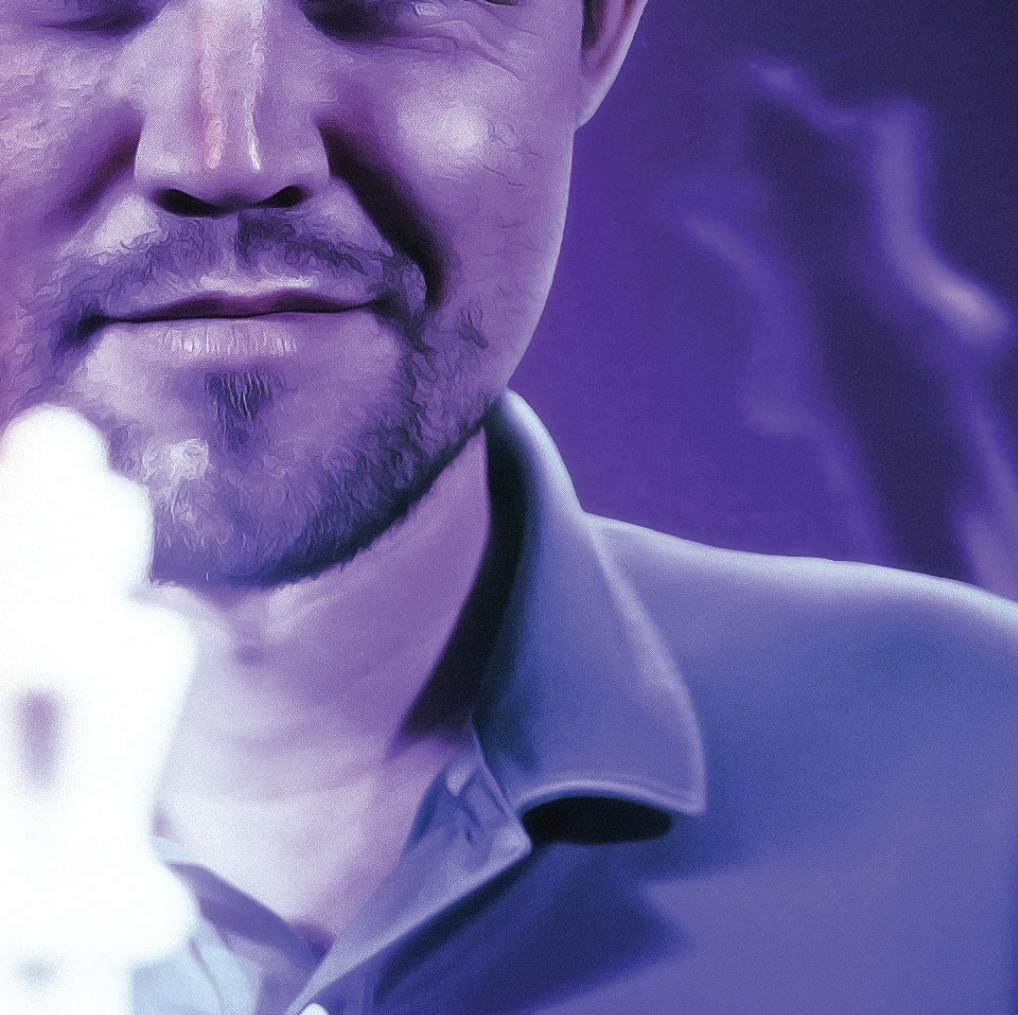





Since its founding in 2018, Spribe has gone from ambitious newcomer to one of the most talked-about innovators in the iGaming space. Best known for Aviator –the world’s most popular crash game – the company is now expanding its impact with new games, strategic partnerships and the recent launch of its own full-service platform, Broadway.
At the heart of Spribe’s success is a commitment to simplicity, innovation and user experience. While much of the industry competes on complexity, Spribe stands out by focusing on what players actually want; intuitive gameplay, fast results and real social interaction.
AVIATOR:
Aviator introduced a brand-new vertical in online casino; the crash game. Its concept is simple – the longer you wait, the higher the multiplier grows, but wait too long and the plane crashes, wiping out your bet. This tension-filled mechanic, combined with real-time multiplayer and in-game chat, made Aviator an instant hit.
It’s now live in more than 130 countries and available on over 5,000 platforms with 50+ million active users and 400,000+ bets per minute. In high-growth regions like Kenya, Nigeria, India and Brazil, Aviator regularly ranks among the most played titles. Its low data use, fast rounds and strong mobile performance make it ideal for both casual and highfrequency players.
In 2024, Spribe took its biggest leap forward yet with the launch of the Broadway Platform – a full-scale iGaming solution designed for operators.
Built in partnership with Delasport, Broadway includes:
• A comprehensive sportsbook with over 100,000 pre-match and 70,000 live events monthly.
• A casino engine offering more than 16,000 games from over 200 providers.
• A modular, multilingual CMS and advanced CRM with real-time analytics. Seamless integrations, mobile- rst design, and tools built for retention and compliance.
With Broadway, Spribe moves beyond content creation and becomes a true technology partner, helping operators build scalable, high-performing gaming businesses.
Spribe’s marketing goes far beyond traditional advertising. The company has aligned with some of the most recognisable names in sports and entertainment to build brand presence across the globe.
• AC Milan: Aviator is the club’s o cial crash game, featured across digital and in-stadium assets.
• UFC and WWE: Aviator branding now appears at some of the most-watched sports events in the world.
• Local ambassadors: In India, Spribe partnered with cricket star Suresh

Raina to tap into the country’s massive sports audience.
These partnerships help Spribe reach millions of fans worldwide – and position the brand as part of a broader entertainment ecosystem.
Spribe’s strongest growth has come from Africa, Asia, and Latin America, where mobile-first platforms and younger audiences dominate. In 2024 alone, Asia saw a 630% increase in new monthly users for Aviator, while African markets delivered more than 20% of Spribe’s global user growth.
The company’s success in these regions comes down to a smart mix of:
• Fast, lightweight games
• Local payment solutions
• Regional licensing partnerships Content that fits the play style of mobile-native users.
Spribe isn’t slowing down. In addition to expanding its Turbo Games portfolio and bringing new titles to market, it is continuing to enhance the Broadway platform with AI-powered personalisation and missionbased retention tools.
For operators, Spribe offers a unique combination: a top-performing flagship game, new content built for today’s players, and a scalable platform to tie it all together.
For players, it’s a seamless blend of fun, challenge, and social thrill – all in under 60 seconds.



























































































































































































































With its talent pool so heavily saturated with iGaming professionals, how possible is it to bring diverse non-gaming hires to Malta?



Malta and iGaming go together like Google and search, peanut butter and jelly, and sweet and sour chicken.








According to the Malta Gaming Authority’s (MGA) 2024 annual report, gambling and betting activity added a gross value of €1.39bn ($1.61bn) to the nation in 2024. This was up by 7.9% from 2022’s full-year figure, with the MGA collecting €82.4m in taxes and fees that year. This is despite the number of licences and companies in the sector dropping by 9.8% to 323 and 10% to
operators is in the work being done. While Flutter and particularly Caesars hire significantly more staff, a significant portion of these individuals will be working in retail and hospitality roles, working at betting shops, on casino floors and more. But, in Malta, iGaming roles are far less customer-facing, with more emphasis put on game and software development, compliance, management roles and so on.
where discussions were had about the importance of having a diverse team. Talbot said: “Everyone’s been in the industry so long, you sit on a panel and everyone introduces themselves – they say, ‘I’ve been in the industry my entire career’, everyone says that and there’s very little diversity because of that fact.

315 in two years.











Yet, even with licences declining, the number of full-time employees working in Malta under a licensed B2B or B2C business was up 7.3% to 14,357 a significant portion of the island’s estimated 550,000-person population. Of this, 10,305 worked in the online segment, while the remainder worked in Malta on non-licensed gaming and in land-based establishments. Malta is a small archipleago and it must also be acknowledged that 14,357 full-time workers is only a drop in the wider gaming industry bucket. Flutter Entertainment alone employs over 27,000 people across its global enterprise, while Caesars Entertainment employs roughly 50,000 people. However, where Malta differs from these tier-one
Bookmakers are considered semi-skilled workers in the UK, while designers are considered skilled workers. These roles require specialised training and experience to complete their roles effectively, often making them harder to come by, and highly sought after.
“We encourage looking outside of the industry and trying to get more people in from other geographical areas, political areas and work backgrounds. And it pays massive dividends.”


















individuals – a significant portion of differs





The gaming industry also has one more problem: it can be somewhat insular. Gaming industry veterans will joke that once you’re in the industry, you’re in for life. This sense of collectivism and community can be felt at industry conventions like iGB Live and ICE, yet often the gaming industry is made up of just this: gaming industry long-timers.
Bringing talent from outside gaming into skilled worker roles has been high on the agenda for many businesses for some time. Almost two years ago, Gambling Insider attended a panel featuring LiveScore’s Sam Talbot, Kate Parker and Gabrielle Hone,
This sentiment was one echoed by EveryMatrix HR Transformation Manager, Simona Busuioc, who tells G ambling Insider : “Hiring people from outside the iGaming industry brings significant value to an iGaming company by introducing fresh perspectives, innovation and diverse expertise,” she said.
“Many critical functions such as financial and legal are not exclusive to iGaming and often benefit from methodologies developed in other fields. Compliance





and ethics are increasingly important in iGaming, and hiring professionals from highly regulated industries like finance or banking can help build stronger governance and data protection frameworks. Ultimately, hiring from beyond the iGaming space strengthens innovation, improves operational maturity, enhances compliance and prepares the company to compete more effectively in a fastevolving global industry.”
In conversation with Gambling Insider, BettingJobs CEO Jennifer Innes noted that, while the “overwhelming majority of our placements are with candidates who have prior iGaming experience, a notable outlier remains in technical roles such as .Net Developers and Cloud Solution Architects, where skill sets are more transferable, and clients are more open to considering talent from out with the industry.” She also noted AI and chatbot tech as key verticals seeking non-industry experience, though this technology as a whole is also causing roles to shift, and in some cases be lost. Different industry backgrounds provide different perspectives and skills – something critical for expansion and key in creating fresh ideas in an industry where ideas are often borrowed and followed. “To look outside of our own industry” was a key area for improvement for the gaming industry, according to Talbot. But what happens when your talent pool consists of only half a million people?
“With a relatively small population and a high concentration of iGaming professionals, companies often recruit from the same limited pool that can lead to onboarding employees with similar backgrounds, experiences and perspectives,” explains Busuioc. “To diversify, iGaming companies often opt for international hires and relocation. Actively sourcing talent from across the EU and beyond, using remote








work, advantageous vacation policies, relocation packages and benefits are ways to attract candidates from aboard.”
Indeed, it is clear that foreign nationals are coming to Malta for work. According to a 2021 consensus, the population of Malta increased from 417,432 in 2011 to 519,562 a decade later. In this, the percentage of Malta residents identified as Maltese dropped from 95.1% to 77.8%, while the number of non-Maltese citizens jumped from 4.9% to 22.2%. But, even with this influx, not all these individuals will be moving into the gaming industry.
While Malta is a hub for iGaming, other significant industries to the Maltese economy that require skilled workers include financial services, ICT and real estate, with other industries of note including tourism and manufacturing.
“Malta has a diverse economy with several significant industries outside of iGaming,” Christine Hili, Recruitment Consultant at Gaming Recruitment Solutions, tells Gambling Insider, listing sectors including financial services and fintech, tourism and hospitality, manufacturing industry, real estate and construction as key to the Maltese economy.
To Hili, hiring from outside of the iGaming industry “can be quite important for iGaming businesses, and its significance can be understood from multiple perspectives such as innovation, creativity, skills, etc.” Of course, “while industry-specific knowledge remains essential, integrating workers from outside the gaming industry brings a balanced mix of industry veterans and crosssector talent tends to lead to more dynamic and adaptable iGaming companies.”
But this is easier said than done. “Malta’s highly concentrated iGaming industry workforce can have both positive and negative implications for diversity in hiring among Maltese iGaming brands,” explains Hili, reflecting on both sides of the debate. “On the positive side, this concentration fosters a highly skilled and experienced talent pool, driving high standards and encouraging innovation within the industry. However, it can also pose challenges to diversity, as local talent may dominate the landscape, making it more difficult for newcomers from different backgrounds or countries to break into the sector – especially when there are limited pathways or initiatives aimed at promoting greater inclusion.”
Finding a balance, therefore, is key. Innes explains: “The industry as a whole could benefit from being more open to candidates without prior iGaming experience; individuals who bring fresh
perspectives, new ideas and innovative products that often don’t arise when hiring exclusively from within the sector. That said, there’s also a valid case for continuing to hire experienced iGaming professionals, particularly to maintain industry standards, ensure operational excellence and drive differentiation.”
With the need to diversify talent, alongside other contributing factors like local expertise and sta costs, many Maltese iGaming companies will look o shore for new hires. As Innes says, “At BettingJobs, we work exclusively with online betting and gaming companies, so it’s no surprise that 90–95% of the CVs we receive come from candidates with direct industry experience. This reflects the highly specialised nature of our talent pool. As a result, the majority of our conversations are with both clients and candidates who are firmly established in the iGaming sector. The chart opposite shows a breakdown of our placements by location for the first half of 2025. As illustrated, recruitment activity in Malta is thriving (accounting for 13% of all placements during the first six months of the year), returning to pre-covid levels. The majority of this demand continues to be driven by clients within the iGaming sector.”
So, if a Maltese business wanted to hire a non-industry worker from off the island, what are the steps they need to take? “Non-EU/EEA nationals need a work permit and residence licence, and employers must prove no suitable local candidates are available,” explains Hili. “EU or EEA citizens can work and live in Malta without permits, simplifying their move. Non-EU workers must apply for a visa, usually sponsored by the employer, before arriving. Employers must be








licensed sponsors and submit required documents, including employment contracts and proof of local advertising.”
Employers are also expected to coordinate travel and integration, handle tax and provide language support to off-island staff. Indeed, post-Brexit, Malta has taken on many of the procedures seen in the UK – a lot of steps to take and, for some, unnecessary ones when a pool of local industry experts is so readily available.
As Innes explains, “most of our clients prefer to hire locally, which makes sense given the strong pool of local talent. One pattern we’ve observed is a clear preference amongst clients in Malta is for candidates who are already living and working on the island. Where there is some openness to hiring internationally, the focus tends to be on EU nationals largely as a result of the complications introduced by Brexit.”
Hili estimates that “roughly 20-30% of jobs in MGA-licensed iGaming companies may be held by workers outside Malta. Many companies hire remote or international
staff, reflecting Malta’s role as a global iGaming hub.”
Busuioc supports these claims, stating that “a significant amount of the workforce supporting MGA-licensed operations is based outside Malta, especially in tech roles and customer services operations with the purpose of optimising costs and having a larger amount of resource available.”
















Christine Hili, Recruitment Consultant,
Gaming Recruitment Solutions All BettingJobs placements (First half of 2025)
With all this talk of diversifying the industry, another question arises. Is it really necessary to hire outside staff? Of course, benefits include an expanded talent pool and transferrable skills, with Busuioc noting that “cross-industry experience across several roles is valuable and might bring a fresh perspective and new skills to organisations, sparking innovation and challenging entrenched practices.” However, she also noted the cons of non-industry hires, including “a possibly slower learning curve,” “cultural adaptation” and “limited industry network.”
So, is Malta’s labour force too iGamingfocused? In short, Innes says no. Competitive salaries and benefits have candidates returning to the industry time and time again and, often, companies are looking for those with this experience in the first place. Moreover, iGaming is “one of the more buoyant sectors in Malta,” making it an industry many will return to especially during times of unemployment.
But this also makes the industry appealing to outsiders, too. With outsiders wanting in, and businesses seeking a degree of
diversity, the question then becomes: How do we get it right?

backgrounds can thrive in gaming,”
Getting non-industry candidates prepared to work in iGaming requires time, effort and energy. Both Busuioc and Hili suggest targeted training as a way to encourage industry migration, with upskilling and collaborations with education institutions also suggested as methods to draw in outside talent. They also both suggest hosting events and opportunities for professionals to explore the industry for themselves, be it through job fairs or internal business events. Busuioc also suggested “sharing success stories of employees who transitioned from other sectors can be a testimony of how diverse backgrounds can thrive in gaming,” delivering tangible evidence of the
bene ts of transitioning to gaming. culture with appealing benefits also
Creating an accepting, dynamic work culture with appealing benefits also provides leverage in gaining outside talent. Says Hili: “Providing clear career pathways, competitive packages and a dynamic work environment can attract diverse talent. Additionally, fostering


an inclusive company culture that values innovation and development can motivate non-industry workers to explore gaming roles. Offering flexible work arrangements and mentorship programs can also help ease the transition into the industry.”
Busuioc adds: “Rebranding the opportunities within the iGaming industry and emphasising the benefits, dynamic and fun work culture, as well as opportunities for innovation and global reach, can help combat stereotypes. Making job descriptions more inclusive by emphasising skills that apply across industries – like project management, customer service or data analysis can make the industry less intimidating for new joiners.”

In short, while iGaming businesses in Malta may not need non-industry hires, these individuals bring a skill set and perspective that may otherwise be lacking in long-term iGaming professionals. Likewise, iGaming is a lucrative market in Malta, with a buoyancy not seen in other industries.
There is want and there is demand. But the pros come with cons and, in that, businesses must be prepared to see the diamond in the rough of potential candidates. All this is to say, diversity is a possibility in Maltese iGaming. And like everything in this industry, there will always be a calculated risk.
than others. Innes explains: “We’re seeing a
Offering these positions with the necessary requirements is easier for some businesses than others. Innes explains: “We’re seeing a growing openness among some clients to consider candidates from outside the iGaming sector, particularly those with experience in other highly transactional digital industries.
This trend is especially noticeable in
more established iGaming companies that already have a strong foundation of in-house expertise and feel confident
broadening their hiring scope.
“In contrast, smaller companies and start-ups tend to rely more heavily on industry specific experience, often prioritising candidates
with direct iGaming
backgrounds to help support early growth.”


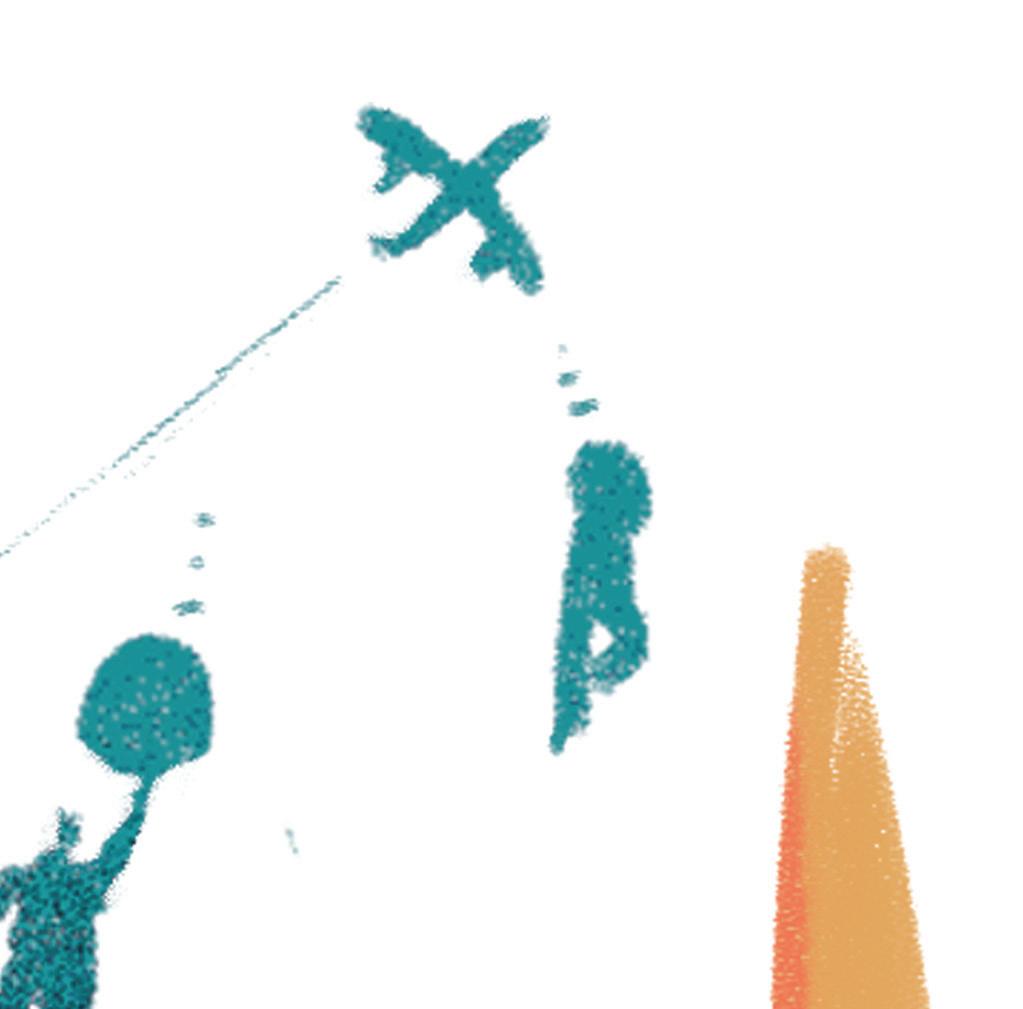




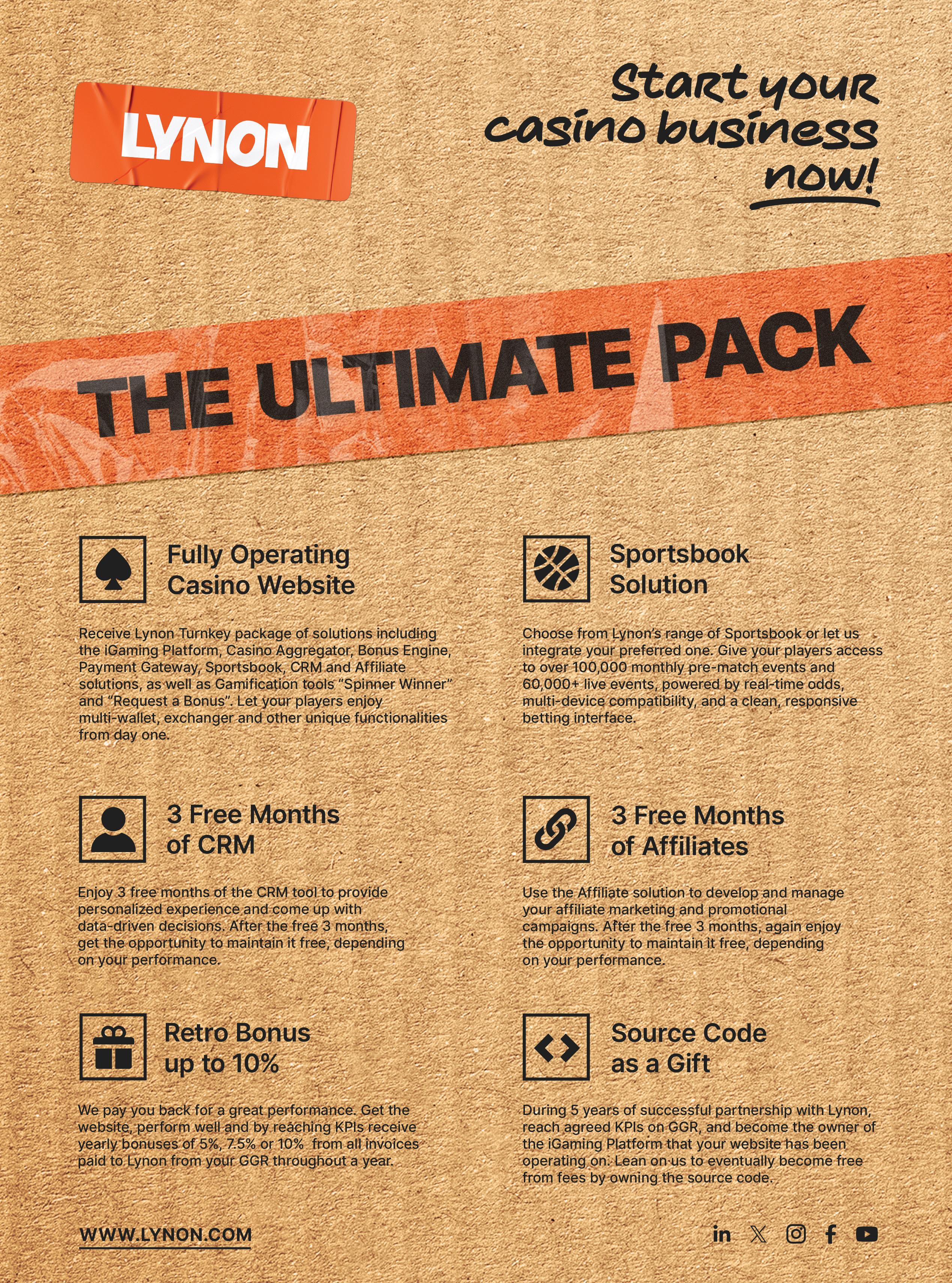



Extending our cover theme of recruitment, Paul Sculpher, Gambling Insider contributor and Director of GRS Recruitment, looks at the broader scope of internal vs external industry hires
Bringing talent into any industry, when they don’t have direct experience of delivering the product, is always an interesting concept. The need for progress can butt heads with the belief that only hard-won experience can prepare a person for a more senior role in the business.
There’s the standard resistance from entrenched lifers – you can always find clowns who think that unless you’ve 20 years of experience as front-line gaming staff, you couldn’t possibly work in casinos at a senior level – but that’s pretty insulting to talented professionals. People (usually) don’t make it to the C-suite without being incredibly good at what they do, and part of that skill set has to be adaptability.
There’s a range, too, of how challenging any transition into the casino industry will be. I’d argue the more senior the role, the easier it is to adapt. I don’t think I’ve ever seen shift managers, for example, ported

in from another business, but there have been plenty of wildly successful General Managers and, once you’re beyond that level, the specific industry becomes less and less relevant. Nobody tells you that the CEO of Hilton has to have years of experience at the front desk, because the management in between the staff level and the directors all have that hard-won experience to a greater or lesser degree – as long as they’re listened to.
For me, the key is for incoming directors to have the requisite humility. There absolutely are differences from sector to sector, and “knowing what you don’t know” is critical. You have to make sure you don’t repeat errors that your team learned from – that’s what experience is, really – or invent brand new errors all of your own. Even in my own casino history I’ve seen plenty of people come into the industry from outside, decide that they had a new improved way
of approaching one challenge or another, and ending up in a mess. Famously, one major player in the casino supply business appointed some folks from overseas to re-shape their business – it went disastrously wrong, nearly sank the business and engendered a rapid change of direction, perhaps just in time.
That’s not to say that super experienced people don’t sometimes have their own flaws too. There’s a fine line between 20 years on the floor and one year repeated 20 times for people without the urge to grow and learn (or change workplaces). We’ve also all known lifelong casino people at GM or Shift Manager level who can’t be removed from the office with a stick of dynamite; and to this day I sometimes come across people who think that shuffling machines, side bets and double zero roulette are the devil’s work, rather than handy tools in management’s locker, to be used or not as


the situation dictates. It never ceases to amaze me when people have a visceral fear of double zero roulette, as if playing to 2.7% house edge is a fundamental human right, all the way up there with the right to self-expression. There are certainly times when it’s not a great idea, but “never” shouldn’t be in the conversation.
New blood is critical in any business to prevent the whole operation simply ossifying – I see this quite a bit with my consultancy hat on. A number of times I’ve come into a business to review their operation and simply asked questions they’ve not thought about for years – that’s what can happen if there’s limited change in personnel, or the faces change but the career experience remains the same. Bringing in new talent at the very senior level will open up different questions, and whether the correct answer is “change it” or “it’s fine as it is” the process of asking the question should be part of every company’s plan on the regular.
I spoke with Lara Butler, Director of Human Resources for one of the UK market leaders, Genting Casinos, about their approach to this question.
“Genting is a big advocate of bringing in talent from outside the casino industry to learn from our skilled internal teams. Our Designate scheme is one of the main avenues for bringing in external talent, where we recruit experienced Managers from hospitality/ leisure/ retail backgrounds to join the operating function of the business. Candidates undertake an intensive training programme,
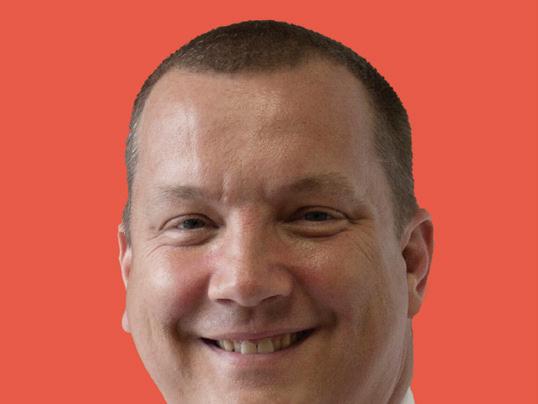

Paul Sculpher, Director, GRS Recruitment
gaining experience of casino management and gaming knowledge through taking part in gaming training and experiential placements in a variety of our sites. Working alongside Managers within our business, they learn to pro-actively manage all aspects of the casino operation. A number of our General Managers have entered the business this way, and their knowledge and skills from other industries has stood them in good stead to cope with the casino environment and succeed with us. Most recently, we have delivered our very first Undergraduate Placement Scheme, and this has been a great success in sparking an interest in the industry for younger generations and equipping them with the skills and experience they need to launch their careers in our field. For Genting, we have gained valuable insights into what younger employees seek from a workplace and many colleagues have enjoyed imparting advice and support and seeing a new generation flourish during their time with us. We aim for them to return post-graduation and in time, become General Managers of the future.”
I asked Lara what advantages and challenges popped up with these schemes.
“The main advantage to bringing external talent on board is transferrable skills gained from working in a variety of sectors and seeing our casino world from a different perspective. Whilst not immediate technical experts, they often enter our business with commendable business, leadership and people management skills which is a huge benefit for our teams. We find new recruits quickly embrace our culture and we gain new insights which can lead to business improvements. The only times in the past where there have been challenges is where someone has not been respectful or sensitive to working with existing internal team members. Our internal people are our core talent, and collaboration, mutual respect and the ability to build strong relationships are non-negotiable values within our culture. Aside from this, we have had some people struggle to learn the gaming which is also another “must”, to be able to lead confidently and capably in our business. Thankfully, these have been rare occurrences, and we continue to deliver a number of internal and external development schemes to grow our talent pool.”
That’s a ringing endorsement of the fundamental concept of bringing people into the industry, to blend the specific casino know-how built over years with new perspectives, and other companies have approached the question in a similar way. It’s clearly the future, and you’d hope that for the sake of casino professionals, there’s a pathway in the other direction too. As Lara says, business sense and people management skills aren’t sector specific, so broaden the net and bring in some new blood.








Growth, growth and more growth –everywhere you look. It’s something we’ve become accustomed to in gaming over the past 10 years. There are, of course, plenty of catalytic indicators that the industry is continuing to expand at breakneck speed. However, the rapid proliferation of gaming expositions worldwide highlights the desire to connect, showcase and innovate within a fast-changing industrial landscape.
When it comes to modern European gaming, Malta has been a key epicentre of innovation – especially within the online space. Indeed, an MGA licence is still recognised as one of the gold standard regulatory approvals an organisation can obtain on the continent – with the thousands of industry employees from around the world that have flocked to Malta over the past 20 years now calling the region home. 11 years ago, in 2014, the industry was in a very different place – with SiGMA launching its first ever Maltese gaming show, attended by just 1,000 industry delegates. Ten years on, last year’s show saw some 27,000 attendees descend on the Mediterranean Maritime Hub (MMH) for what was SiGMA’s largest ever show.
Yet things are changing. After a decade of successful Maltese outings, SiGMA has decided to shake up its European conference model via the introduction of a new, Romebased show – with the Malta iteration set to shift to an earlier date.
Previous attendees of SiGMA Malta will understand the unique experience of visiting the island during conference week. Joyous as the occasion can be, there is one unifying complaint that is part and parcel with the island’s infrastructure: tra c.
This is one of the key reasons highlighted by SiGMA as to why its Euro-Med show has been moved forward this year and is now set to take place on 1-3 September 2025 – prior to the beginning of the school year, which heavily contributes to the often-painstaking traffic issues. Those very issues have no doubt been responsible for many a missed meeting over the years
The show is also set to start an hour later this year at 10am for similar reasons, with SiGMA overall specifying an enhanced exposition

All roads lead back to Malta for an early edition of the newly coined SiGMA Euro-Med show – which this year comes prior to the debut of its new Rome-based sister show, SiGMA Central Europe

centre experience at the MMH and simplified travel logistics for global attendees as further reasons for the date change.
Those familiar with previous renditions of the show can expect a somewhat toneddown feel to this year’s conference, with an estimated 12,000 delegates from across the industry set to make up over 400 exhibitors and sponsors, all showcasing their best and brightest innovations as the year begins looking towards its final quarter.
Kicking off at 10am on Tuesday 2 September, SiGMA Euro-Med keynote speakers are set cover all things European regulation, innovation, financial, online, retail and sports betting across two stages throughout the day. Day one of the conference then concludes at 6pm with networking drinks until 8pm. Moving on to day two, panels begin on the SiGMA Stage at 10:30am with an exploration of employee burnout, moving on to themes including women in gaming, AI, high-risk markets and affiliate marketing. Over on the AIBC Stage, the morning begins at 10:45am with a panel on crypto gamification best practices, moving on later to the featured AIBC startup pitch – in






which budding gaming entrepreneurs will present to potential investors and VCs.
From 6pm, the SiGMA Official Celebration will take place at Paradise Bay Beach, open to all ticket holders and running until midnight. One of Malta’s most stunning small beaches, the beach bar backs directly onto the sand, closing out the conference in one of the most pristine settings imaginable.

Taking over from exactly where SiGMA Malta left o after 10 years, the newly announced Rome-based SiGMA Central Europe show is set to descend on the Italian capital from 3-6 November 2025.
Indeed, this division of the prior Maltese conference has come with the expectation that Rome will inherit the larger engagement figures in comparison to the Euro-Med event – with an estimated 30,000 delegates set to arrive at the Fiera Roma for the conference’s first outing. A state-of-the-art, 190,000 square meter exhibition space – the Fiera Roma is one of the largest conference halls in Europe and is situated just eight minutes away from the



Leonardo da Vinci International Airport, as well as 30 minutes from the city centre.
Among the 30,000 expected delegates, over 500 speakers, 7,500 affiliates and 7,500 operators from all corners of the global industry will connect via the 1,200 exhibitors and sponsors on show, as the calendar year nears its conclusion.

The capital city of one of Europe’s largest and most exciting markets, Italy’s fastexpanding online landscape represents the perfect place for the growing SiGMA brand to take its next steps. Day one of the event kicks off at 10am on Tuesday 4 November, with global industry innovators, leaders, affiliates and entrepreneurs presenting panels and discussions on the latest trends in the European space. Following the conclusion of day two, SiGMA’s Official Celebration is set to take place at a currently undisclosed location, running from 10pm until 4am.
Then, dusting the cobwebs off on Thursday morning, day three of the conference commences at 10am, running until 6pm with the ceremony’s closing networking drinks set to take place until 8pm at the conference centre. Over the course of the three-day event,

themes such as innovation, AI, marketing strategy and payments – all within the wider context of the shifting European landscape –will be explored.
With a roster of gambling conferences that are now both global and growing, SiGMA Euro-Med and Central Europe wait around the corner as two of the most intriguing tradeshow events scheduled for the second half of 2025.

Indeed, SiGMA Euro-Med and Central Europe being situated in September and November, respectively, ensures two well-timed networking opportunities for companies looking to secure those key handshakes that will help shape the roadmap for 2026. In a year that has already seen so much change across the global industry, the buzzing atmosphere of a gambling exposition remains constant – and is something that only can be truly captured by visiting the convention space. As the industry continues to push forward, the vibrant exposition sector remains there every step of the way, even if there is now one extra step!



















































Built for the long haul
























Throughout the years, Habanero has demonstrated that achieving lasting success in the iGaming industry is not centred on chasing trends but instead mastering the fundamentals and building upon them. This simple approach has consistently worked in its favour and is a philosophy that has proven advantageous for the team’s success.




appeal, resonating with players thanks to thoughtful design and high-quality production.




















while



to build community and increase retention, the feature has already proven successful across multiple markets designed to increase engagement.





As one of the iGaming industry’s most consistent and creative content providers, Habanero has spent the first half of 2024 reinforcing its global presence, focusing on localised gameplay, gamification and operator partnerships. With more than 27 regulated markets under its belt, the company’s reputation for combining premium visuals with sophisticated mathematical models continues to resonate with players and partners worldwide.


a major
































Founded with a vision to create immersive slots and table games that balance entertainment with innovation, Habanero has spent years building a diverse, dependable portfolio rooted in a comprehensive understanding of what players connect with. Every title is crafted to offer something distinctive, whether it is bold visuals found across our array of games, or the far-flung adventures in Daruma Impact Love and Riches El Dorado , there is always a new experience waiting to be uncovered.









Habanero has successfully expanded across both mature and emerging markets. New licences in Greece and Denmark have solidified its position in Europe, while growth in Latin America remains a key priority. Brazil, in particular, has become a major focus following its regulatory launch in January. With previous successes in Colombia and Argentina, the team has developed highperforming titles tailored to Brazilian tastes and is laying the foundation for long-term partnerships. Africa also plays a prominent role in the company’s expansion roadmap. South Africa remains one of Habanero’s strongest markets, with growing traction in Ghana, Nigeria and Kenya, and has cemented partnerships with leading brands such as Betway Africa. With smartphone adoption on the rise and infrastructure improving rapidly, Habanero’s mobile-optimised portfolio is well suited to the demands of the region, offering fast-loading, intuitive games that require minimal bandwidth without compromising on quality.














Games like Scopa , originally designed for the Italian market, are a true example of how Habanero blends regional preferences with universal















with growing traction in Ghana, Kenya,


At Habanero, regulation is viewed not as an obstacle but as a foundation for sustainable growth. With compliance embedded into every stage of the development process, the company can respond quickly to new legislative frameworks while maintaining the quality and integrity of its games. Whether we’re entering Brazil, preparing for new licensing rounds in Italy, or expanding across Africa, Habanero’s proactive regulatory approach ensures it remains a trusted partner for operators and a safe choice for players.











such as Betway Africa. With infrastructure improving the offering on quality. company’s is



Looking ahead, the company plans to enhance its influence in existing markets while confidently expanding into new ones. This includes further growth across Europe, increased investment in mobilefirst design and the launch of culturally tailored games for important regions. With gamification and community-building tools increasingly central to strategy, Habanero is committed to pushing the boundaries of player engagement in a regulated environment.








The company’s growth is not limited to just geography. Habanero has also invested in enhancing player engagement using unique gamification tools. Its signature feature, Jackpot Race, transforms the traditional jackpot mechanic into a real-time, shared competition that rewards players in new and exciting ways. Designed











for new licensing rounds in Italy, or upon them. worked that visuals the and true blends operator than belt, combining sophisticated create games with years building a diverse, dependable portfolio
Ultimately, Habanero’s philosophy is simple but effective; build great games with great maths, understand the players and never lose sight of the entertainment experience. In an industry that moves fast, demanding constant innovation, Habanero continues to prove that a thoughtful, local-first approach is a sustainable, winning formula.
Jackpot Race, transforms the great maths, understand the players and
















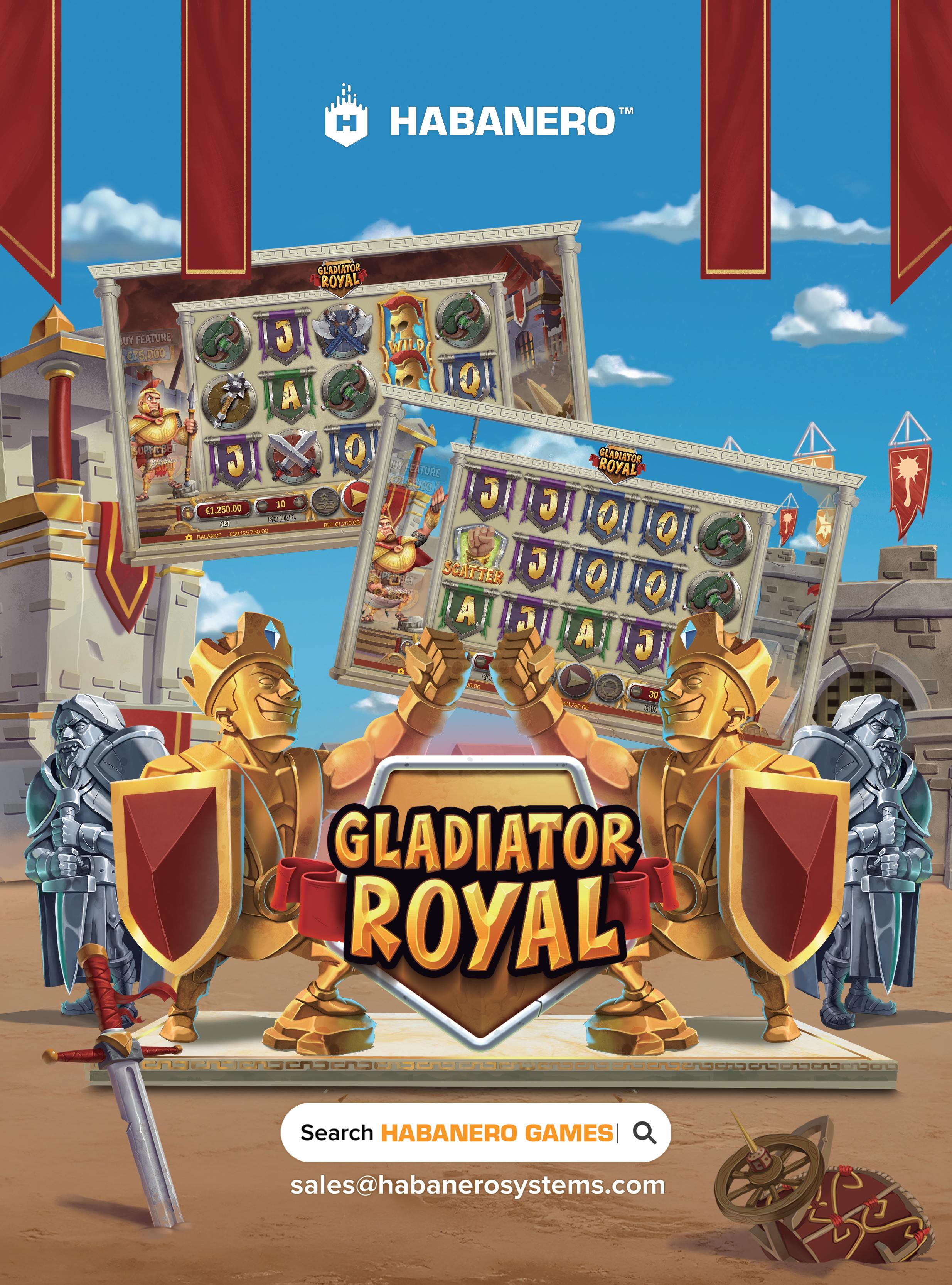













Eva Berkova, Betby COO, speaks exclusively to Gambling Insider about the sports betting supplier’s operational, strategic and recruitment focuses in Malta
Betby has long been present in Malta. What value does Malta hold for your operations?
For Betby, having an office in Malta was a strategic decision because it remains one of the most established and in uential jurisdictions in the global iGaming space. It offers a clear legal framework through the Malta Gaming Authority (MGA), an English-speaking business environment and access to an extensive network of partners. Indeed, it is not just operators and providers, but also regulators, media and support services.
It’s a place that allows us to stay close to key industry stakeholders, with innovation, networking and operational execution all happening in close proximity. From a strategic perspective, all of this continues to bring value, even as global competition intensifies.

How do you view the recruitment process in Malta with so many foreign workers in the country?
Recruitment in Malta presents some

Eva Berkova, COO, Betby
challenges. While the international talent pool brings cultural richness and a variety of perspectives, the market is saturated. The concentration of iGaming companies has led to a competitive environment in terms of nding the right top talents.
Previously, the talent pool was limited due to Malta’s size and geography. While there has been some improvement, especially with remote work flexibility, the local pool still lacks depth in specialist areas like tech and product. The result is often higher salaries, shorter tenures and a continuous exchange of talent across companies. That’s why Betby, like many others, complements its Malta office with operational hubs in other European regions that have also established themselves as tech hubs fed by a larger tech community.
On a positive note, Malta is actively working to address this through initiatives like the apprenticeship programs outlined





Are there any roles, in particular, you feel are well suited to Malta’s iGaming environment?
Yes. Account management and commercial roles are a great fit for Malta because the density of companies and partners makes face-to-face networking incredibly e cient. Whether it’s industry events or meetings with stakeholders, everything is nearby. This proximity makes it easier to build and maintain strong relationships, which is why Malta remains an ideal location for iGaming professionals.
By extension, how would you defi ne the Maltese regulatory landscape today?
The Malta Vision 2050 framework includes 90 initiatives aimed at strengthening high-value sectors –iGaming included – while also supporting growth in related areas like esports, AI and game development.
At Betby, we’re already exploring these verticals. One of our most significant milestones was securing MGA approval for our proprietary esports feed Betby. Games, a process that wasn’t easy, especially since no similar product had ever been approved before.

Malta has historically been a pioneer in iGaming regulation. The MGA’s framework was once so ahead of its time that countries like Colombia used it as the basis for their own regulatory model. For years, holding a Maltese licence was seen as a “universal passport” for operating in multiple markets. However, that has changed. Today, most countries have their own national frameworks and Malta’s licence is one of many pieces in a global operator’s compliance strategy. That said, Malta still holds significant weight due to its solid regulatory structure and focus on AML, compliance and player protection. It’s not the fastest or cheapest option, but it’s still one of the most trusted.
Beyond esports, we’re also building AIpowered solutions that support more dynamic and personalised betting experiences. Malta’s willingness to engage with innovation and adapt regulatory processes to support new technologies makes it a great testing ground for forwardlooking projects like ours.
To wrap up, how would you describe Malta’s role in the global iGaming landscape going forward?
Malta still has a lot of benefits: its EU access, regulatory maturity, global reputation and depth of industry experience are unmatched in many ways. But the country’s leadership will depend on how well it adapts.
in the Malta Vision 2050 program, which are designed to develop local talent in collaboration with key industry players. If executed well, this could help create a more sustainable pipeline of skilled professionals for the future.
As the industry has matured and technology continues to evolve, how have employer expectations changed when it comes to iGaming talent?
The iGaming space has grown far more complex than it was a decade ago. Today’s employers aren’t just looking for role-based expertise, they’re looking for flexibility. A good developer or account manager now also needs to understand compliance, data privacy, multi-jurisdictional regulations and even emerging trends like AI integration.
At Betby, we value professionals who can think across different fields. Soft skills like adaptability, autonomy and crossfunctional collaboration have become just as important as technical knowledge. The ability to grow with the company and work in a fast-changing landscape is what truly sets talent apart.
Malta’s Vision 2050 suggests the country is looking beyond iGaming. How does Betby view this push into areas like esports, digital entertainment and emerging tech? We think it’s a smart and necessary evolution.
Instead of just competing with jurisdictions like Curaçao or Estonia, Malta needs to build an ecosystem where gaming meets fintech, digital entertainment and sustainability. At Betby, we’re excited to be part of that evolution. We want to help shape what comes next for Malta and for the industry as a whole.





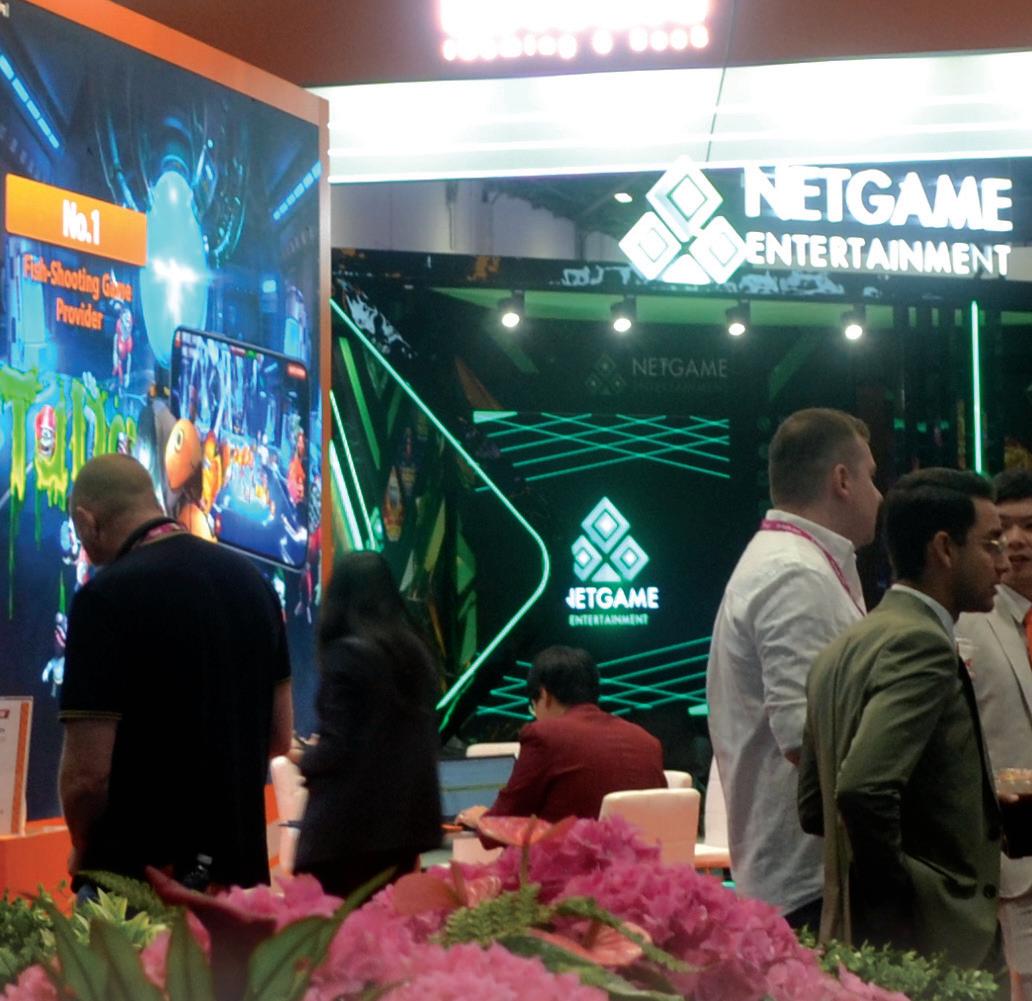

As an industry, iGaming can present some unique challenges when it comes to burnout. But are you aware of what the signs look like and how to tackle them in the long term? A panel at iGB Live discussed...
Every type of work is prone to stress and burnout, but with the fast-paced nature of the ever-evolving gambling industry, this environment certainly comes with its own unique challenges. Unlike many other industries, there isn’t an expected ‘downtime’ for iGaming. While a popular clothes shopping website might expect less tra c overnight, the international scope of operators and the 24/7 nature of casinos means iGaming is always on the go. This can attract a lot of highly driven personalities, who feel
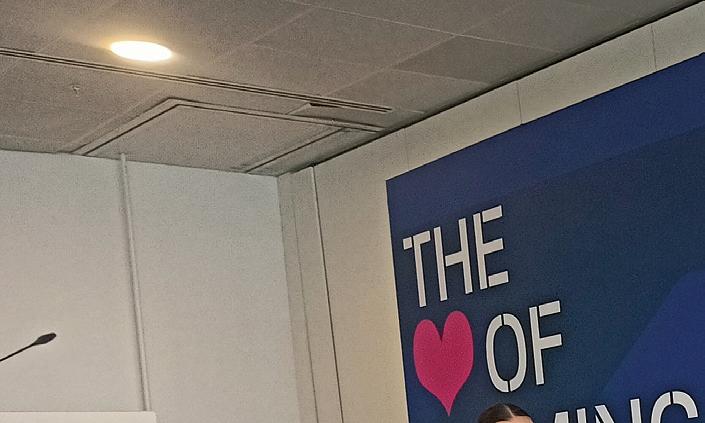

they have something to prove over other employees, causing them to work harder and later than necessary.
But with iGaming being a faceless industry, both in the rise of remote working and customers not interacting with people on online casinos, it can be easy to forget the human element of this trade (especially as AI evolves). All of these leave iGaming employees at a particularly high risk of burnout. But can’t you just wait until an employee is stressed and give them a few
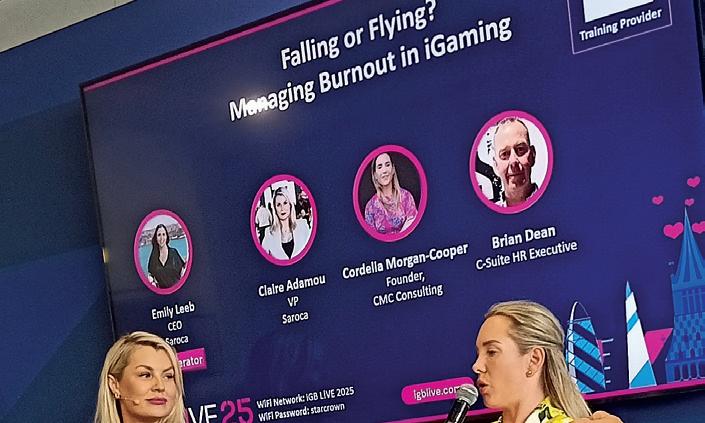


days off to recover? Unfortunately, it’s not as simple as that; and prolonged burnout can lead to significant problems for the company if friction in the workplace is not addressed.
Chronic stress can lead to serious health concerns for workers, with many in the industry already suffering the effects or even being hospitalised in the process. Attendees and members of the panel alike shared their stories of being rushed to the emergency room for incidents related to stress. There was also a running theme:



almost all companies having employees in different offices around the world, this means management are expected to juggle different cultures, including traditions, expectations and even bank holidays. Who among us has accidentally messaged a co-worker on one of their national holidays without realising it? If you have employees in the UK or other countries in the very northern hemisphere, then seasonal depression during the winter is also another major factor in burnout.
when single but then start a family, of course they are going to put them family first over work!
So, imagine you’re in this position. You are no longer enjoying your work, you’re dreading waking up and struggling to concentrate throughout the day. You’re unsure whether it’s due to a bad time of year, you don’t fully understand the new project you’ve been assigned – or if this has never happened to you, perhaps you’ve recognised these signs in one of your employees. This could all be happening to someone who, just a week ago, was perfectly happy and motivated.

while many of these managers knew how to protect their teams and ensure they were getting a good night’s sleep, who was looking after the management?
There is an assumption that those in managerial roles can look after themselves, but we’re all human, and this expectation can cause leaders to overlook signs of burnout until it is too late. These can include waking up with less motivation than usual, being easily irritable, struggling to concentrate, or even feeling physically ill or in pain. One quote from Brian Dean on the panel summed this up quite perfectly: “It’s like an allergic reaction to your lifestyle,” so you can expect all of the symptoms that come along with it.
Some personalities will be able to identify burnout faster, especially if they have close relationships with friends or coworkers who have gone through a similar experience. However, others will need to go through the entire gauntlet first. This will include the classic stages of denial, refusing to listen to advice and even deliberately not taking time off to ‘prove’ one can handle it. Many employers use the word ‘resilience’ when discussing burnout, but resilience is not overworking and pushing yourself to extremes. It is being able to handle the chaos that comes along with iGaming; whether that is travelling to international expos, negative media attention or an ever-evolving environment.
Resilience is also being able to set boundaries and discuss potential issues in the workplace without fear of retaliation from the employer. As Claire Adamou said: “You are in your role for a reason. You need to identify your value, own that value and not be afraid to ask for changes to create the most sustainable version of yourself.”
But what are some of the biggest things that can cause friction in the workplace? As iGaming is an international industry, with
More general points include managerial expectations vs what is reasonable for the employee; people basing their self-worth and purpose in the workplace; companies wanting to pay less and wanting people to work more; a culture of gossip or bullying; hypocritical behaviour from management; coming up against red tape when trying to complete projects; and companies not understanding that people’s priorities can change. If someone joins the company
What are you meant to do? One of the first things to acknowledge is that if you are burnt out, it’s because you are already finding your situation to be challenging. This makes it very difficult to make changes in your life, because you’re already overwhelmed to begin with.
Have you ever sent an email after hours to one of your colleagues?
Have you ever felt the need to reply to an email sent to you after hours?
Have you ever expected your colleagues to reply to an email you’ve sent after hours?
One of the best things you can do whenever you’re feeling overwhelmed in life is reach out to someone. This can apply to general mental health, life stressors and occupational burnout. However, you need to have a good enough relationship with the other person to do so. This means that if you’ve established a strong working relationship with an employee, they will be more likely to open up about things that are stressing them out and – like a strong crew on a boat in the stormy seas – you will be able to weather the rocky period together. This is certainly easier said than done though, especially if you have employees who are working remotely. If somebody is in the
office, you can pick up on their tone of voice, their hundred-yard stare or perhaps notice if they’re checking their phone constantly, and slumping further and further down their chair as the day goes on. These body language cues do not translate well through Microsoft Teams!
This means you’ve really got to form a personal bond with employees who are not in the office and hope they trust you enough to manually update you if something is straining them on their end. Some of the most effective ways are asking questions about their lives and staying in touch, but you have to make a genuine effort to form genuine connections. In business, asking personal questions is seen as transactional
by default, so you have to go the extra mile by taking an interest in them outside of what they can offer the company on a day-to-day basis. On the panel, Dean explained that he likes to use ‘Easy Fridays’, where people can leave early to ‘ease’ into the weekend – but on Monday, you come full circle and ‘ease’ back into the week by spending an hour or so asking everyone what they did at the weekend, how it made them feel, what they hope to achieve the next weekend etc.
As for those in leadership positions, you need to trust your team enough to step back and let them lead themselves every now and again. One of the biggest contributors to burnout at the managerial level is feeling the need to oversee everything all of the time. Maybe someone on your team made a mistake once and you’ve never quite trusted them the same way since; or as is often the case with
people in management positions, you’re a perfectionist and want things done your way or not at all. However, you’ve hired these people for a reason. No one is asking you to step away permanently, but when things are tough, your team should be able to run themselves for a little bit and reciprocate the support back to you.
Life stressors and the beginning stages of burnout can be solved with short-term solutions, but what about implementing different business practices to help avoid it in the first place? It’s all too easy to forget about the effects of the workplace on the employees, but there are some easy things you can introduce.
A note for management: It is crucial that leaders actively support initiatives introduced to combat burnout. This can include gently
restricting people from working overtime and not asking people to ‘make an exception this one time’ after the measures have already been put into place.Employees may already feel uncomfortable asking to take time for charity work or switching to performance-led cultures, for example, so it’s up to you to drive these schemes and ensure everyone feels safe (and won’t be fired) for taking them up.
Both Emily Leeb and Adamou emphasised the importance of zones, as introduced in Gay Hendricks’ The Big Leap. If an employee is working in the wrong zone, then this can lead to burnout faster. It’s worth sitting down with people in your team and asking them which tasks they would allocate to each zone to see if there is an easy way to balance out the workload to ensure that as many people as possible thrive in their roles. The zones are as follows:
You’re not good at the work
You’re good at the work
You’re
There are also a plethora of active stress management strategies, rather than passive ones, that can help employees once the work day is done and they’ve gone home for the evening. These are included in Saroca programmes, though, so we shan’t give too many of these trade secrets away.
Do businesses have a legal obligation to look after the mental health of their employees? No but, with work being one of the unavoidable stressors of daily life, a good leader will take on the moral obligation to ensure that people feel supported, valued and cared for – both in and out of work. There is a moral case but, moreover, there exists a business case too. Burnout, after all, is not conducive to productivity. Minimising burnout therefore creates a win-win.
Gambling Insider attended another panel, featuring Alex Roberts and Anna Davies, discussing a careful approach to tackling the black market
The Gambling Commission’s (GC) black-market report is set to soon be published, and no one will be shocked to discover that it deems illegal online gambling to be a significant problem. While this is a UK-based project, the wider implications are far reaching for online gaming Europe-wide.
The Betting and Gaming Council (BGC) has run its own studies and estimated that £2.7bn ($3.6bn) is staked annually on hidden-market websites. According to the body, this is a conservative evaluation, and the real total may be nearer £4.3bn.
How aligned these two bodies can stay, therefore, will likely determine the effectiveness of attempts to stopper black market growth.
The black-market paradox was the subject of this panel, with Alex Roberts, Director of Policy at the BGC, and Anna Davies, Head of Compliance and Safer Gambling at Metropolitan Gaming. This ‘paradox’ suggests the more you regulate to protect users and licensed industry, the more you hinder them, encouraging bad actors to enter the market and motivating players to gamble with them.
Both panellists were keen to explore alternative solutions, while neither want to make an enemy of the GC. It raises the question: How can you solicit the aid of regulators without being further inhibited yourself? This might be the industry’s most challenging paradox, and the way the panel

walks that rhetorical tightrope is indicative of two battle-hardened lobbyists.
They’re boxed in. Legitimate industry has the black market on one flank – an aggressor harvesting players and revenue – while on the opposite side is the GC. Licensed operators must fear being caught in the crossfire if the problem posed by the black market is overstated. The attempts to manage and dictate discourse on its size then start to make more sense. The last thing they want is to be more tightly regulated, but they don’t want those player-stealing sites to go unchecked. Roberts delicately calls for “balanced regulation.” A sweet spot.
Aggressive marketing is one of the most fraught regulatory battlefields and greatest weapons of the online black market. Consider the GC tightened advertising regulation further. The new rules would apply to licensed operators, while offshore invaders would continue raining URLs on our heads and circumventing guidelines. So, if not that, how do Roberts and Davies want to see the battle fought?
By détente. Through finding a common cause. Fighting a battle on two fronts has ominous historical precedent, so the BGC has by and large backed the GC. “No one benefits from demonising the regulator.”
In Berlin, the BGC recently agreed with the AGA and the ECA that illegal gambling was a serious threat. Here at iGB Live, Roberts repeats the £2.7bn figure. No one wants to deny the illegal market, but Roberts is still keen to repeat his tempering mantra: its scale shouldn’t be overestimated.
“Balanced regulation.” That phrase again evokes a trembling high wire act.
Showing deference to the work of the GC is a sage strategy, and trying to get on top of research puts the BGC in a strong position to negotiate the way ahead. The tighter industry can be with lawmakers, the more influence they can wield to move themselves out of that regulatory firing line.
And how do they think the GC’s resources and time should best be used? Because, as Davies points out, these illegally trading operators are sophisticated set-ups,
and taking down a URL is not going to head them off. This kind of criminality is not a cottage industry and there is plenty of money to be extracted from British gamblers. One demolished URL will quickly be replaced with five more. For Davies, it’s education as much as enforcement: “As an operator it’s about educating customers, to put people in a safe place is to empower them, find out why people are motivated to go to the black market.”
This mature and diplomatically inoffensive accord seems to be the terminus of this discussion. While it’s about educating players, it’s not about industry versus government; and it benefits third-party social enterprises and charities too.
The panel points out that studies have shown most people can’t pick out a legal gambling website from an illegal one. Education really does seem to be in order. Realistically, while that is the case, other efforts take on a pretty blunt look. Our speakers agree that cross-industry, crossgovernment, cross-border cooperation will have to light the way out.
“It’s not a gambling industry problem; it’s a social problem, education problem, crime problem, banking problem. Lessons can be learned from other black markets” says Roberts. It’s both a convenient conclusion for the industry representatives and just maybe the most sensible.
“Balanced regulation.”

























In another panel, Max Collinge, Head of Product at Yaspa, shared the payments company’s research in the field of open banking
Attitudes around money take a long time to shift. Maybe we are so reluctant to talk about our money that changing how we fundamentally manage and move it around is impossible for us to do. Even transitioning our bank notes from paper to hardy washing machine-proof polymer got the nation misty-eyed about the now-lost art of nding a balled up, battered and torn ver in the lint trap. Open banking has also been a slow revolution, but convenience will prevail and Max Collinge, Head of Product at Yaspa, shared with his audience at iGB Live that one in ve consumers and businesses are now engaged in open banking in the UK. Compared to elsewhere in the world, then, the UK has actually been pretty fast on the uptake, and the Labour Government’s electionwinning manifesto promised to continue this move by delivering the next phase of open banking and defining a roadmap for open
finance. In iGaming, where Yaspa, a payments fintech company, has turned a lot of its attention, it is proving particularly popular. For an operator, the moment at which players are depositing money is the last point at which you want to introduce friction if you can help it. With card deposits, though, two-step verification processes and the like can hold things up and deter players.
Open banking is a potential balm to this operator pain point, as it allows for frictionless account to account transfers. And at this point in the UK’s slow payments revolution, every account holder with a major British bank has access to robust, secure open banking payment options.
But why does this pain point exist in the first place? Well, for good reason. Anti-money laundering measures are central to the long term aims of the Gambling Commission, with the regulatory body keen to introduce credit



bureau checks too. At the top of the panel, Collinge alludes to the work Yaspa is doing with the UK Government, which along with its commitments to financial innovation has laid out its intentions to reform the gambling financial ecosystem. In 2024, the company was awarded a grant for its safer gambling payments and AI platform by Innovate UK, the UK’s innovation agency.
Without the research into innovation that Yaspa is involved with, the levels of friction between player and operator when it comes to payments could become somewhat of a crisis. That’s because not only is authentication and security a consideration, but increasingly operators are expected to be implementing affordability checks to protect vulnerable players.
At the time of the grant award, James Neville, CEO and Co-Founder of Yaspa, said: “Currently, operators view players at the single








input into the mix, holding that up against the objective banking data. Collinge tells us we can hope to see the fruits of some research into this area come H2 this year.
The pressure from regulators is to observe and act on potential signals of problem gambling before they escalate. This is, of course, the panacea. If players can be stopped from harming themselves, operators too will benefit and see better long-term player retention. A rare case in gambling of both the player and the house winning.
In practice, real-time detection has not been an area where operators have excelled, according to Yaspa’s product chief. One obstacle noted by Collinge was that problem gamblers have been shown to spread their bets around. A study that Yaspa conducted into markers of harm using consensual data from HSBC and Monzo showed that even moderate gamblers exhibited this behaviour. Maybe some players are trying to find a workaround, full in the knowledge that there are checks in place to restrict the harm they can inflict on themselves.
and address. Analysis of bank statements would likely tell you most of what is needed to be known. Convincing operators to work together, let alone with banks, is the task at hand. But a balanced list of benefits that serve player and operator alike makes it far likelier to happen, especially with continued government backing.
Financial backing is also a must if the research and implementation is to continue. On that front, there was a hubbub and plenty of hugs concentrated around the Yaspa stall early on day one at iGB live. Yes, everyone was looking forward to Collinge’s panel, but the $12m investment was also conducive to a party atmosphere. That Series A raise could be game-changing for Yaspa and for the continued growth of open banking as an instrument of change within gambling.

operator level and rely on disruptive checks that risk driving people to grey markets. Yaspa’s frictionless process combined with a pan-operator view will transform the experience for operators and players alike.”
With open banking, these ‘disruptive’ checks can be all but invisible to on the player side – there will rightly always be the point where consent has to be acquired, but if players are consenting to something that doesn’t seem like it will disrupt their experience, they are far more likely to acquiesce. As it stands, operators are seeing adoption rates of 10-15% once the player is asked to upload a bank statement, while this figure is reportedly closer to 40% in some cases when this is replaced with an open banking link.
While Trustly is a leader within open banking and gaming, the particular innovation that Yaspa is at the heart of involves using open banking to generate markers of financial harm. There is no one type of vulnerable gambler, what represents a ‘risky’ pattern of play to an AI may be just that in one instance – but financially stable to another. And what if a pattern of play isn’t flagged as dangerous, but in fact that player has dependents or they’ve recently lost their job? This is where Yaspa believes banks and gambling operators can work together to be proactive about monitoring for signs of harm. They also want to add more direct player
Or maybe they are just playing the percentages looking for the best odds. Player behaviour, whether problematic or safe, can be unpredictable. It could be said that operators don’t want too much information on their players. GDPR and data compliance rules don’t make gathering it straightforward. But Collinge would tell you these are all good reasons for the banks themselves to be brought into the processes.
The principle is simple, if novel. Combining the data that is in theory available to banks and operators, signals of financial distress in players would be far easier to anticipate
The money has come from investors led by Discerning Capital with participation from Metavallon and TechStars Ventures. While Yaspa will now be setting up a new base in Atlanta, David Williams, partner at Discerning Capital, will be taking up a role on Yaspa’s Board. He has said of the partnership: “The high-risk nature of gambling payments makes it an area in need of innovation and we believe Yaspa addresses two of the biggest issues: chargebacks and player protections. We believe that any operator who evaluates Yaspa’s A2A product versus their existing payments provider will end up adding Yaspa.”
How the instant payments company will be able to disrupt its new market and adapt to the specific needs in that region remains to be seen, but the money will certainly give it licence to get stuck into that process with gusto.



Polina, CVO: How to create a leading brand and build a successful career in iGaming
The CVO (Chief Visionary O cer) role is one of the most strategic in executive management. It’s about shaping a company’s future, predicting trends and inspiring teams to reach goals once thought impossible.
In this internal interview, Polina, CVO of 1w B2B, shares her leadership philosophy, insights into iGaming trends and advice for career growth in the industry.
What does a Chief Visionary Officer do?
At 1w, the CVO isn’t a symbolic title but a practical role. I deeply understand B2B processes, communicate brand mindset to leaders, generate new ideas and motivate teams toward progress.
What drives 1w’s brand strategy?
Our strategy, formed at launch, is simple: Become brand #1. The foundation is innovation, exibility and commitment to building a strong, relevant brand. Despite doubts, we’ve outpaced some competitors in tech, a liate marketing, staffing and GGR – because we don’t believe in the word “impossible.”
What trends are shaping 1w’s future?
Key trends in tech and iGaming already a ect our development. In B2C, crypto’s societal role pushes us to create userfriendly solutions. In B2B, we focus on launching scalable White Label iGaming products to help partners build e ective brands.
Can iGaming C-level leaders adapt to industry growth?
It depends more on hiring policies than individuals. At 1w, many top managers grew from junior roles, learning the company’s DNA and developing real leadership.
C-level leaders here often manage multiple teams. I’m one example. We’re
also open to strong external talent – as long as values align.
Key B2B trends?
First, personalisation: People partner with people, not logos. This pushes leaders to become public brand ambassadors.
Second, asset diversification: Holdings are building ecosystems to strengthen internal products and offer external value.
How does 1w innovate?
We were pioneers in systematic public engagement. What started as our initiative is now a must-have across the industry. Horizontally, we launched Performance Lab and FAME – our media buying company and CPA network – to scale internally without intermediaries and retain expertise.
How are long-term partner relationships built?
Trust, personalisation and openness. Our success in performance marketing depends directly on our partners’ efficiency. Our lasting strategy: A personal approach and shared growth.
How do you manage teams and maintain balance?
Now I lead top managers who run their



own teams – I don’t micromanage. But early on, I made mistakes by misassigning roles and not trusting people. Leadership maturity comes with experience: build a strong team, trust them and let future leaders grow.
team management practices?
• Motivation: Your team must connect with your goals. If you hit a personal milestone (e.g., buying a Ferrari), what motivates your team next?
• Delegation: Passing a task means giving the right to fail and succeed. I’m always available for advice, but I trust my team to act.
• Distributed expertise: Avoid overloading a single team – clearly define roles to reduce con icts.
• Healthy internal competition: Teams with similar functions should share feedback and grow together. I create transparent processes for that.
Advice for a career in iGaming?
As my colleague Alexandra says: “If you grow 20% a year in iGaming, you’re just keeping up.”
Here’s what matters:
• Be proactive: If something needs doing –do it. Show your value.
• Be visible: Let results speak. Keep pace with the company’s growth.
• Build connections: Know how to collaborate across departments and externally. Strong networks are invaluable.
• Stay hungry: Passion and ambition get noticed – even if you don’t ask.
IGaming is evolving fast, with constant challenges and opportunities. This conversation with Polina shows that long-term success depends on vision, adaptability and human focus. 1w proves that achieving goals isn’t about ambition – it’s about systems and people.

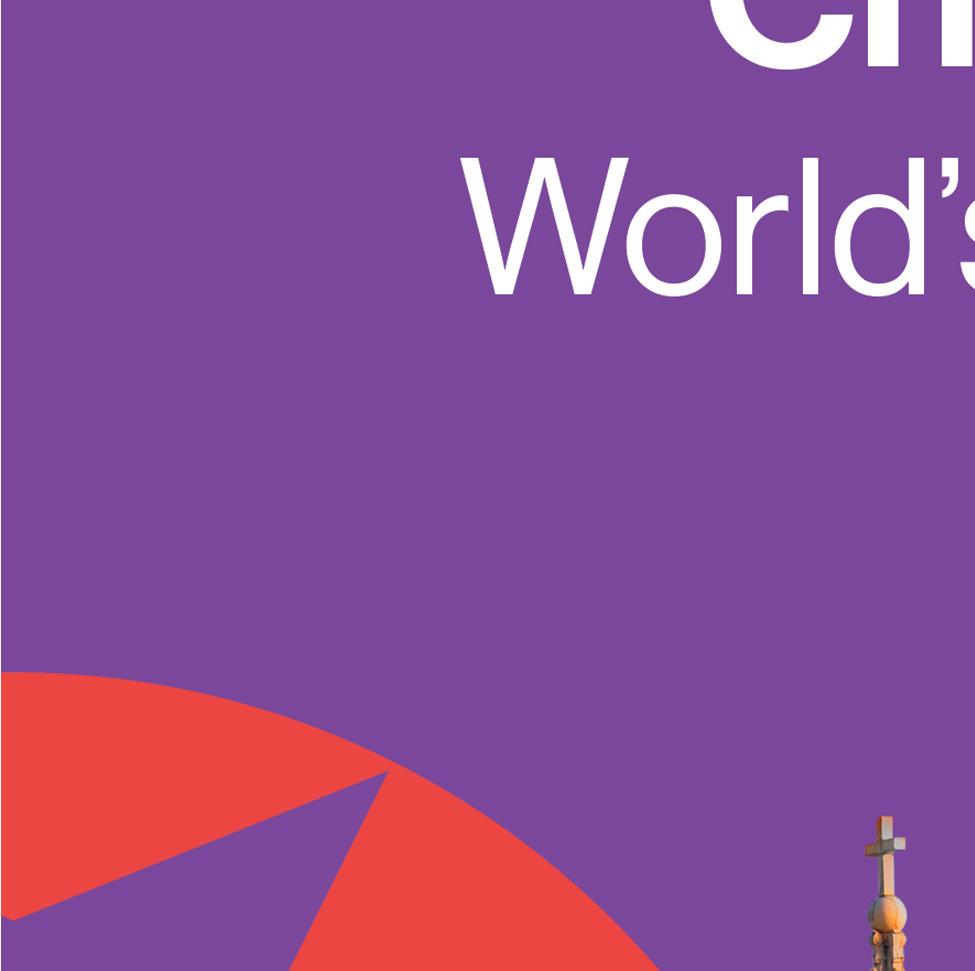

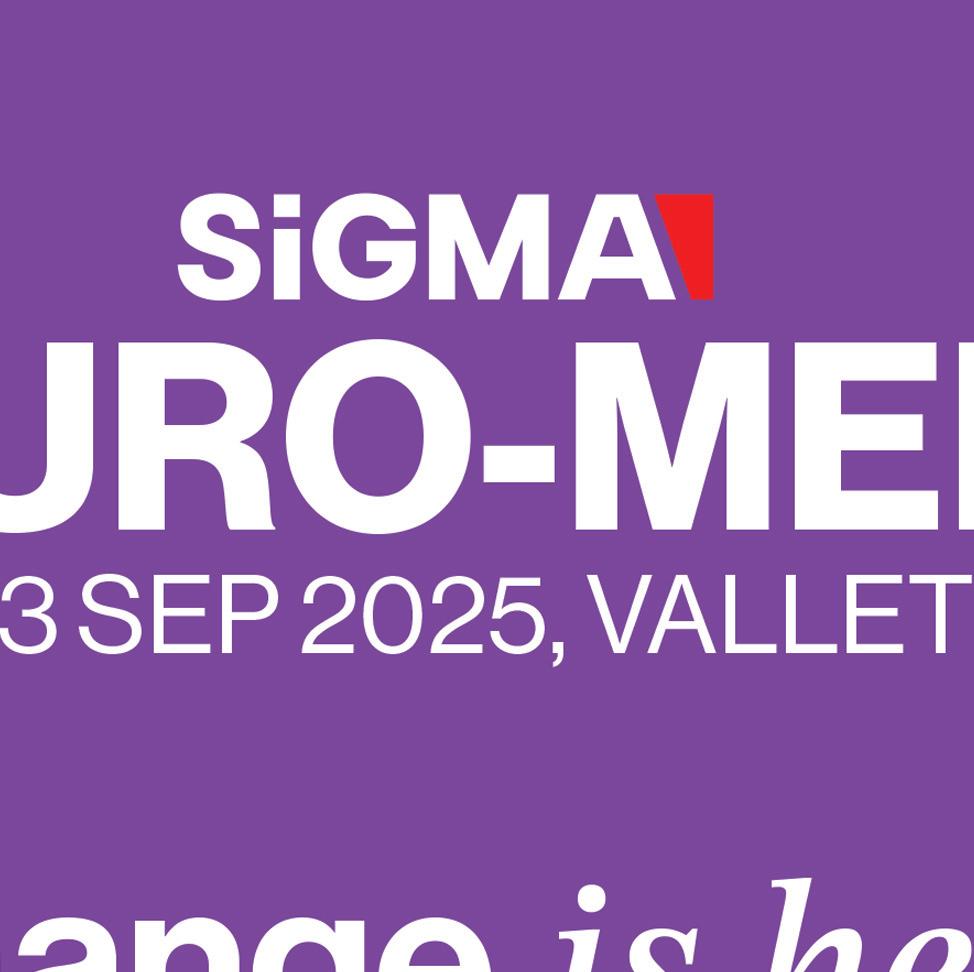
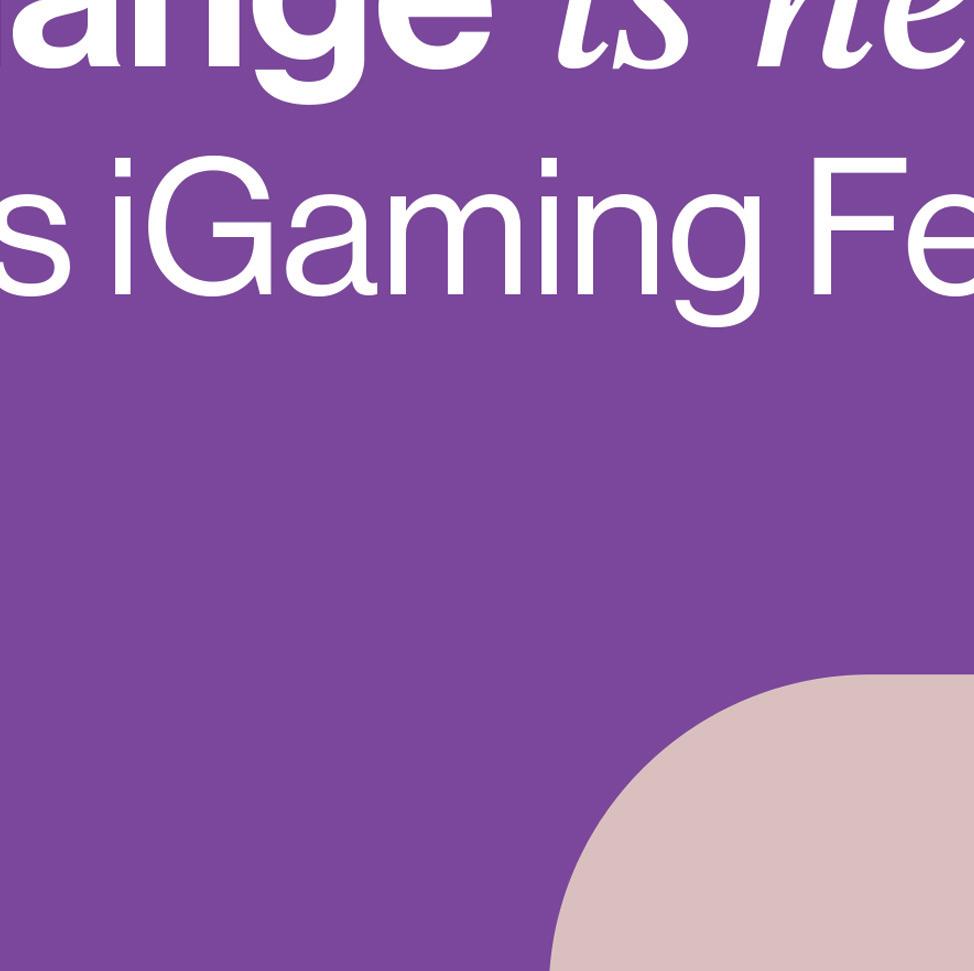



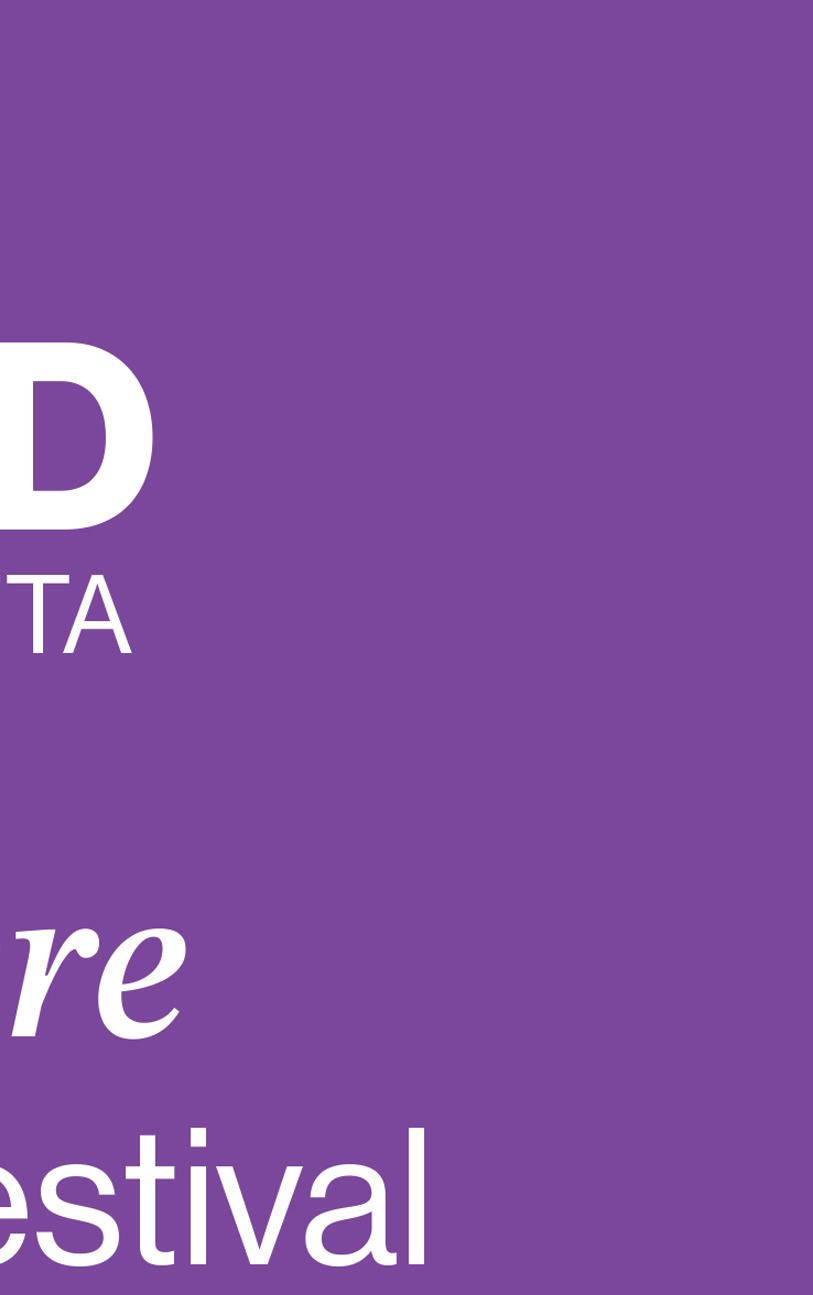










Mark McGuinness, Devilfish.com CMO and regular Gambling Insider contributor, discusses why AI isn’t coming for your job... it’s coming for your excuses

The whispers in every iGaming boardroom are getting louder: generative AI will render our marketing teams obsolete. This narrative is not only wrong but also a colossal failure of imagination. As a leader in a communityfirst brand, I see a different future taking shape, one where AI isn’t a job killer, but the ultimate job creator. This great equaliser will finally value human ingenuity above all else.
The fear is understandable. We see platforms generating photorealistic images from a single sentence or writing perfectly coherent ad copy in seconds, and we extrapolate a future of empty desks and streamlined redundancy plans. We see a threat to human capital. For myself, I see the demolition of barriers, internal politics and silos that have held back our industry’s true creative potential for decades.
Let’s be honest about the internal dynamics of many large organisations. For years, our corporate structures have inadvertently stifled our best thinking. Good ideas are often trapped by titles and tenure. A brilliant concept from a junior community manager might never see the light of day because they lack the “seniority” to present it or the “technical skills” to prototype it. Ideation is judged not on its merit, but on the job title of the person who conceived it. Social cohesion
and a desire to not step on toes often means the boldest ideas are watered down before they even reach a decision-maker.
This is the hidden, cultural barrier that has cost our industry more than any budget cut. It’s a culture where an employee’s value is measured less by the quality of their ideas and more by their proficiency in a specific tool or their years of service.
Now, give that same junior manager an AI co-pilot. Suddenly, the conversation changes. They don’t need to ask for resources; they can create them. They can generate a dozen visual concepts in an afternoon. They can ask the AI to analyse player data and suggest ve distinct audience segments with tailored value propositions. She can refine her ad copy in real-time. Now the junior manager arrives at the strategy meeting not with a vague concept, but with a fully realised, data-supported prototype. The friction between the idea and its execution has evaporated.
This is the significant equaliser effect. AI doesn’t care about your job title. It democratises the means of production, making the vision behind it the scarcest and most valuable resource. When everyone can produce a beautiful ad, the only remaining differentiator is the quality of the idea that inspired it. The most effective idea now trumps

the most polished technical skill or the longest tenure.


This democratisation extends far beyond our own teams. It ignites the co-creator economy and transforms our most passionate players into our most e ective marketers.
Consider the most vocal enthusiasts in our social communities, for example, the poker fans who dissect hands in Discord or the slots players who share big wins on X. They are filled with authentic, grassroots ideas for promoting the games they love. Yet they have lacked the tools to bring those ideas to life professionally. With AI resources, that barrier is gone. The creator who once just wrote a text post can now create a compelling meme or a short video script in seconds.
But we must think bigger. This is about more than just co-creating marketing content; it’s about co-creating the product itself, intertwined with AI. Imagine an innovator like Stake.com introducing a remote gaming server platform called the ‘Stake Engine,’ Build, Launch, Earn.
This platform enables creators to design, develop and deploy their own slot games directly on the platform. A creator can use





AI to define the theme, choose the volatility, suggest bonus mechanics and use an AI image generator to create the art style. The ‘Engine’ would handle the complex coding and compliance checks. In return, the creator gets a lifetime revenue share from their game.
Suddenly, thousands of new, hyper-niches, hyper-local and culturally relevant slot games flood the market, created by the community, for the community. Who should be truly terrified of this future? The traditional games studios.
This is the Blockbuster Video moment for any games studio whose business model relies on long development cycles, high overheads and being the exclusive gatekeeper of game creation. Their commercial moats, built on proprietary technology and creative talent, haven’t just been breached; they’ve been rendered irrelevant. An entire industry layer could be bypassed overnight.
Of course, this new world doesn’t run on magic. The argument that AI will eliminate jobs mirrors the same short-sighted fears that have been expressed during every previous industrial revolution. The invention of the loom didn’t just end the era of the weaver; it created a new world of mechanics, factory managers, logistics experts, designers,




advertisers and workers’ rights, among others, in a vast early version of social democratisation.
The AI revolution is no different. For this ecosystem to function, a whole new infrastructure is required. We are seeing the birth of entirely new roles within our industry: prompt engineers who specialise in translating human ideas into effective AI commands; AI ethicists tasked with ensuring fairness and preventing bias in our models; data scientists who train bespoke AI on our unique player data; and systems architects who build and maintain the robust computing infrastructure needed to run it all.
These are not fringe roles; they are the new



foundation of a modern iGaming operation. For every routine task that AI automates, a new, more strategic and more creative role emerges. We are not replacing humans with machines; we are augmenting humans with tools that demand we become more strategic, more innovative and more visionary.


The C-suite conversation, therefore, needs a fundamental re-framing. The urgent question is not, “How many roles can we eliminate with AI?” It should be, “How do we retrain our teams and reshape our culture to leverage these tools to create value we previously couldn’t imagine?” The fear shouldn’t be that AI will take your jobs, but that a competitor who fully embraces AI will take your market share.
The future of marketing isn’t about who has the biggest team or the most rigid hierarchy; it’s about who has the boldest ideas. AI ensures that, finally, nothing will stand in their way.
Mark McGuinness: Architect of High-Impact iGaming Marketing. Currently CMO at Devilfish. com, Mark brings 24+ years of elite digital marketing leadership, advising top-tier iGaming operators across diverse regulated landscapes. He translates deep analytical power, honed from his scientific background, into breakthrough strategies for affiliate marketing, Web3, social poker, and casino gaming. Mark champions the game-changing integration of neuroscience and behavioural economics to skyrocket customer engagement and conversion.
In iGaming, speed has always been seen as the ultimate edge. Fast launches. Fast integrations. Fast rollouts. But as the market matures, a new competitive advantage is emerging: Control.
• Control over the roadmap.
• Control over the player experience.
• Control over growth.
Vyking exists to give operators that control –without slowing them down. While most platforms force a trade-off between speed and autonomy, Vyking is built to deliver both.
Across the industry, one pattern has become clear:
• Operators who want to innovate are often held back by the platforms powering them.
• They’re promised flexibility but delivered templates.
• They expect agility and encounter bottlenecks.
• They aim to lead but get stuck waiting on someone else’s roadmap.
That’s why Vyking was built differently – with modularity, developer access and long-term product evolution at its core.
“ We’ve seen too many great teams get stuck behind templated systems and roadmap delays. Vyking was built for people who want to build – and who refuse to wait for permission to innovate”
– Franz Gerhart, CEO, Vyking
Whether you’re launching a new brand or scaling an international portfolio, Vyking gives you the foundation – and the freedom – to shape your future.
Vyking supports every stage of your journey through a tiered platform model that evolves with your needs:
• Vyking Core – High-speed white-label infrastructure for rapid market entry. Fully managed. Ready to go.
• Vyking Edge – A turnkey-plus solution o ering operational input, modular control, and reduced vendor reliance.
• Vyking Flex – A self-service framework with full frontend source code, modular backend, and Reverse Integration – enabling full product ownership.
This isn’t a rigid upgrade ladder. It’s a flexible evolution path.
Start where you need to. Scale when you’re ready.
Vyking was among the first platforms to o er Reverse Integration – and it’s still one of the most powerful ways we give control back to operators. Instead of locking you into our roadmap, Vyking allows you to seamlessly connect your own technology into our infrastructure – including payment systems, game studios, and custom modules powered by our real-time data feed. No need to start from scratch. No need to rip out your frontend. Just connect what matters –safely, modularly, and on your timeline. It means you can migrate in phases, build inhouse tools, or expand your stack without hitting platform limits or waiting on blackbox vendors.
You keep what’s working. You evolve what matters. And you do it all without losing momentum.
“Reverse Integration is about freedom. It lets operators evolve at their own speed, without waiting on us or anyone else” – Franz Gerhart, CEO, Vyking
Payments sit at the heart of both the player experience and operational strategy – especially when navigating multiple markets and regulatory landscapes. Vyking integrates with a wide range of PSPs and wallets – giving

Franz Gerhart, CEO, Vyking
operators the infrastructure they need to adapt locally and scale with con dence. What sets us apart is K1ngPay – our own crypto-native solution built for high-speed, hybrid transactions. Designed to streamline operations and accelerate entry into emerging markets, K1ngPay gives operators real control over how –and where – they scale, without being locked into predefined vendor routes. From Europe to LATAM to Asia, operators can optimise for local payment preferences and faster onboarding. You don’t just get access to markets – you get the infrastructure and tooling to compete in them.
Vyking is built for alignment – with operators, their teams and their long-term goals. We operate a boutique model by design:
• Hands-on onboarding
• Strategic implementation support
• Revenue share-first partnerships that scale with operator success
If you’re looking for a vendor who hands you a login and disappears, we’re not it. But if you’re building for the long haul – we’re exactly who you want in your corner.
From challenger brands to scaling enterprise groups, Vyking is becoming the platform of choice for operators who want:
• The freedom to build in-house
• A clear route to product ownership
• Full localisation control and hyperpersonalised experiences
• Modular, modern, developer-first infrastructure
What started as a solution for frustrated mid-tier brands is now being adopted by global players seeking new market strategies and migration paths. Because the need for control is no longer a niche ambition – It’s a strategic requirement.
If any of this resonates – whether you’re looking to move faster, localise better or nally take control of your product – come speak to us at Stand 2020. Let’s talk about where the industry is going –and how you can get there without compromise.
